Finding
my Whakapapa Movers

Pēpuere February 2023 | warcrymagazine.org.nz and Makers A Chaplain’s Heart
Kei Konei te Rongopai!
war cry
8 Finding my Whakapapa
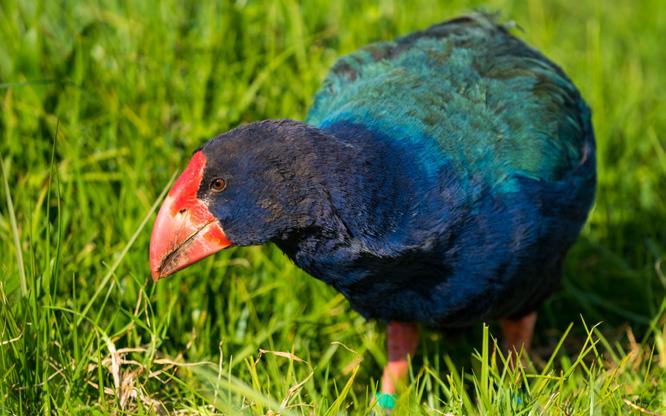
Lt-Colonel Ian Hutson shares his story of growing up in a Pākehā family, and later discovering his Māori heritage and identity.
12 Amplify: Together Again
You really can’t beat Wellington on a good day—not when you’re at Amplify anyway!

20 Real Love and a Place to Belong
Sandra Terris tells her journey of heartache and homelessness before finding a home with real love at Palmerston North Corps.
22 What it Takes to Be a Chaplain
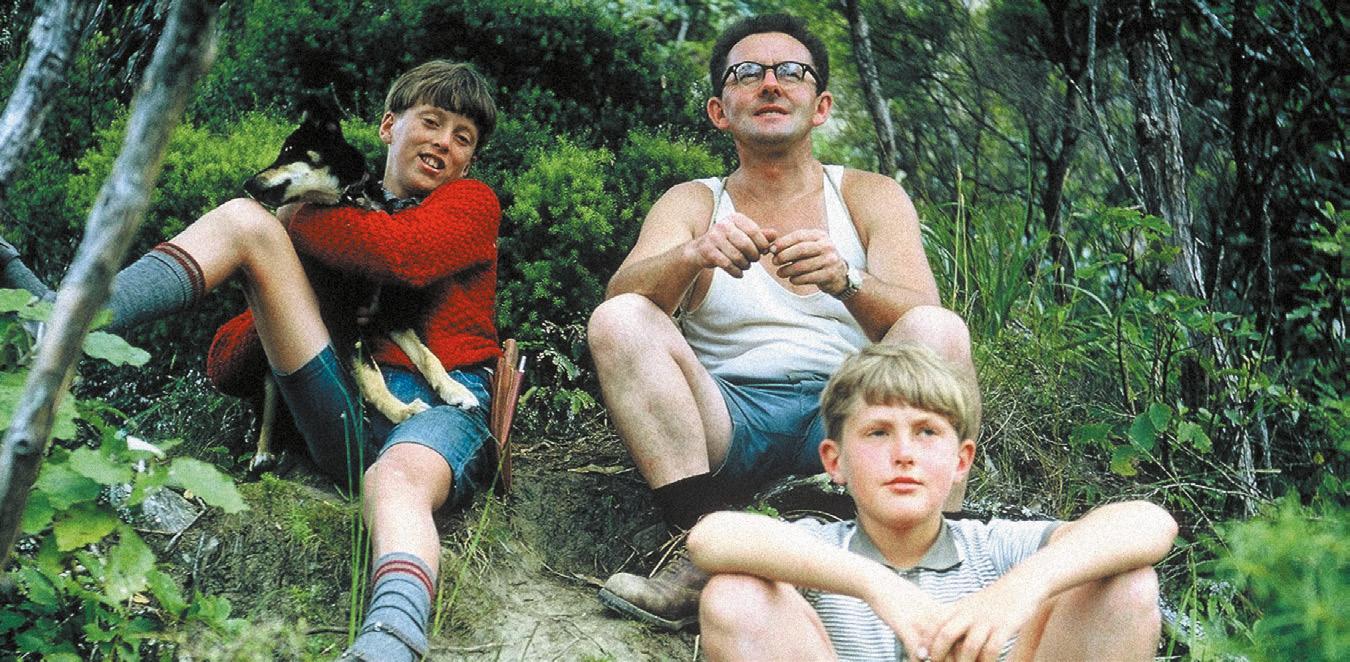
A chaplaincy student undertakes a six-month internship with TSA Street and Court Chaplain Major Joe Serevi to learn the heart of chaplaincy.

28 The Persecuted Kingdom
Major Mat Badger shares a second reflection on the Parable of the Sower, exploring the seed that fell amongst the rock.
33 Carrying the Message to Australia
The Salvation Army's Māori Party, which was founded in 1895, led an evangelical tour of Australia that highlighted the unity of all people under the gospel.
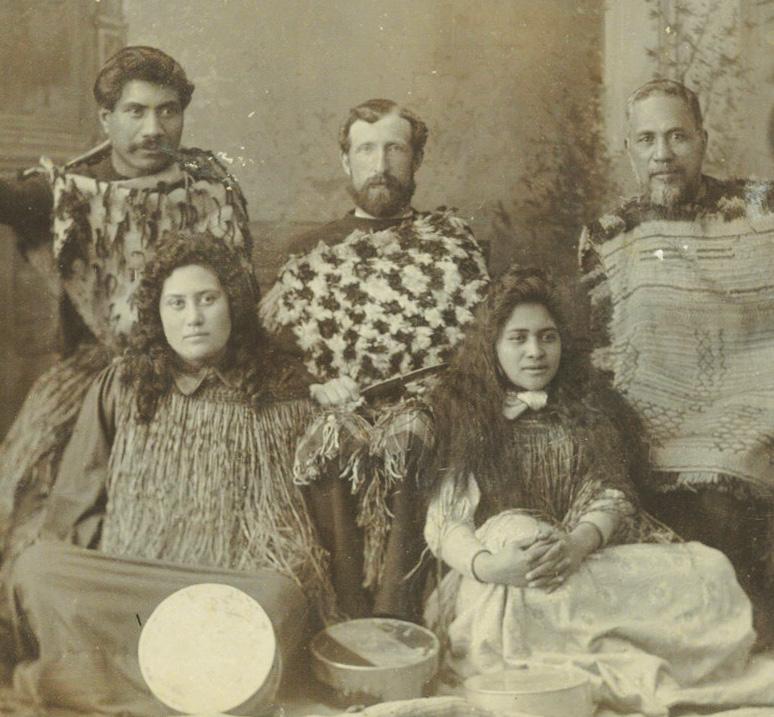
Cover Art: Clare Dargaville
War Cry Magazine
The Salvation Army New Zealand, Fiji, Tonga and Samoa Territory
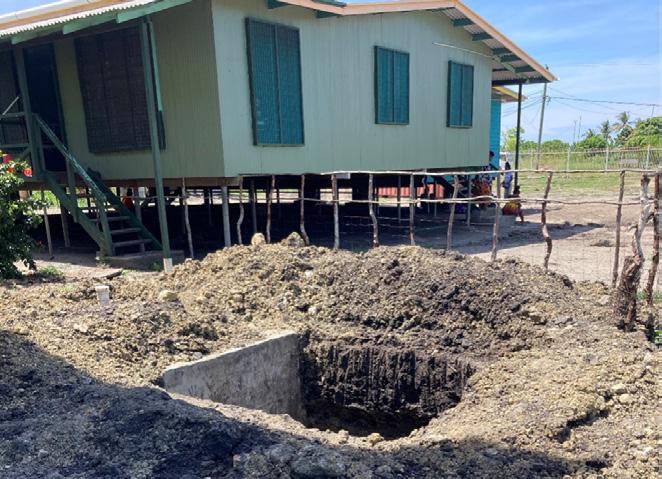
Territorial Leaders
Commissioners Julie and Mark Campbell
General
Brian Peddle
Founders Catherine and William Booth
19
Editor Vivienne Hill
Graphic design
Sam Coates, Nicole Gesmundo, Lauren Millington
Staff writers
Jules Badger, Hope Burmeister, Holly Morton, David Youngmeyer
Proof reading
Colleen Marshall
Connect with us warcrymagazine.org.nz
SalvationArmyNZFTS @SalvationArmyNZ salvationarmynzfts
Territorial Headquarters, 204 Cuba Street, PO Box 6015, Marion Square, Wellington 6141 p: (04) 384 5649
Subscriptions
All Bible references from the Holy Bible, New International Version, unless otherwise stated. Views and opinions expressed do not necessarily represent those of
Articles are
14 23 33
06 09
28
mailorder@salvationarmy.org.nz Print Management MakeReady Publishing for 137 years Volume 2, Issue 4 ISSN 0043-0242 (print) ISSN 2537-7442 (online)
copyrighted
e: warcry@salvationarmy.org.nz Contents 2 Pēpuere February 2023
The Salvation Army.
to The Salvation Army, except where indicated, and may be reprinted only with permission.
Kei Konei te Rongopai! The Gospel is Here!
hakoa i tae mai ngā mihingare ki Aotearoa me ō rātau māramatanga ki te rongopai i ngā tau 1800 neke atu, nō mua rā anō i te taetanga mai o tauiwi a Ihu Karaiti i poropitiatia ki ngā kupu whakaari o te iwi Māori. Toru tau tōmua i te taenga mai o Kāpene Kuki i hua mai te poropiti o Arama Te Toiroa i te tau 1776 i meatia:
‘Te ingoa o tō rātou Atua, ko Tama-irorokutia, he Atua pai, otirā, ka ngaro anō te tāngata.’
Kei tēnei whakaputanga, a Rūtene Kānara Hutson e ruku ai ngā tai o mahara ki te wā i whitiwhiti whakaaro ā ia ko Sally Rankin o Te Ope Whakaora, kia tūhono ai tōna (a Sally) peka Māori ki tōna peka o Te Ope Whakaora. He pāoro anō tēnei nō ngā takiringa poropiti Māori me rātau hoki ngā kaiwhakamārie ki ngā iwi, i whāngai ake te rongopai o Ihu Karaiti ki te motu. Nā te mārama ki tō rātau ahurea i ngāwari noa tēnei hikoi, he nohonga tapatahi nō tō rātau taha wairua ki ō te ahurea. E arahi ana Te Atua i a tātau kia whakatairanga i a tātau ake hanga rongomaiwhiti, hei hua e taupua ai, e taumata hoki ai te Kingitanga o Te Atua.
Although missionaries brought their understanding of the gospel to New Zealand in the 1800s, there have been records of Māori prophets sharing about Jesus years before the Europeans arrived. In 1776, Arama Te Toiroa shared this prophecy three years before the arrival of Captain Cook:
‘The name of their God will be Tama-irorokutia (Son who was killed), a good God, however the people will still be oppressed.’
In this issue, Lt-Colonel Ian Hutson mentions a memory he has of Māori Salvationist Sally Rankin, who shared about her dream of having the Māori part of her come together with her Salvation Army part. There are echoes of this in these Māori prophets and of Māori who acted as evangelists towards other iwi, sharing te rongopai (the gospel) of Jesus across the country. They were able to do this so well because of their understanding of how their faith could interact with their culture. The Lord guides us to use our unique skills and background for the growth and care of his kingdom.
Holly Morton-Chong Acting Editor
Waiho i te toipoto, kaua i te toiroa. Let us keep close together, not wide apart.
warcrymagazine.org.nz 3
QUICK QUIZ
1 What was the Māori population compared to the settler population in 1840?
2 When was the Waitangi Tribunal established?

3 How many Māori chiefs signed the English copy of the Treaty of Waitangi?
4 How many copies are there of the Treaty of Waitangi?
5 What does the informal ‘fourth article’ of the Treaty discuss?
Answers page 32
Life Hacks: The Wardrobe Test
WORD OF THE MONTH
Hey Fay!
Fay Foster is excited to be joining the Communications Department as the communications administrator. She previously working in the Public Relations Department on the same floor, so is just moving to a desk around the corner. Fay is already familiar with the comms team and is sure it will be a great place to work.
Source: Te Aka Dictionary
Want a way to make sure you’re wearing everything in your wardrobe? Here’s a great tip for the start of the year. Hang your clothes up with the coat hangers facing the wrong way. Whenever you wear something in your wardrobe, put them back with the coat hanger facing the normal way. When you get to the end of the year, you can see what you haven’t worn as the hangers will still be facing the wrong way. You can even use this as an opportunity to donate any clothes that are still in good condition to your local Family Store!

Source: Please Don’t Pray With Your Mouth Full, by Bob Swanson.
Fay and her husband Greg (who also works for The Salvation Army) and their two children lived overseas for close to 30 years in various countries doing development work. This experience gave her a real understanding and appreciation of different cultures and worldviews.
Now that she is back living in New Zealand, Fay enjoys walking her very active Jack Russell dog, spending time with her equally active grandchildren, reading, watching movies, and making lots of noise while supporting the All Blacks and other NZ sports teams. She also loves to travel whenever she can.
kī taurangi
(Māori, verb) to promise, guarantee, vow, make an oath, pledge, assure, swear an oat h.
4 Pēpuere February 2023
Pork and Cabbage Spring Rolls with Peanut Pineapple Dipping Sauce

55 mins | Makes 18–20 | Dipping sauce: 5 mins | Makes 1 cup
Ingredients
• ⅓ cup dried shiitake mushrooms
• 250g pork mince
• 1 teaspoon sesame oil
• 1 clove garlic, minced
• 2 medium carrots, finely sliced (about 1 cup)
• 1 cup water chestnuts, coarsely chopped
• 6 cups—around 350g—green cabbage, finely sliced
• 2 tablespoons lemon juice
• 3 tablespoons hoisin sauce
• ¼ cup soy sauce
• 1 tablespoon oyster sauce
• Salt and pepper to taste
• 2 tablespoons cornflour dissolved in 2 tablespoons cold water
Method
• 18–20 square spring roll wrappers (approximately 20cm)
• Canola oil for frying
Dipping sauce
• ½ cup crunchy peanut butter
• ⅓ cup canned crushed pineapple in juice, including juice
• 1 lemongrass stalk, finely sliced—or 1 tablespoon lemongrass paste
• 1 clove garlic, chopped
• ½ teaspoon dried chilli flakes
• 1 tablespoon fish sauce
• 1 ½ teaspoons dark soy sauce
• Salted peanuts to decorate (optional)
Place the dried mushrooms into 1 cup of boiling water to soak.
Heat the oil in a frying pan and cook the pork mince until browned, breaking it up with a masher to a fine crumbly consistency. Drain the mushrooms reserving ¼ cup of the liquid, and chop finely.
Stir the garlic, mushrooms, carrots, water chestnuts and cabbage into the mince then add the lemon juice and sauces. Add ¼ cup of the mushroom soaking water and cook until liquid is evaporated. Thicken with ½ the cornflour mixture.
When cooled place a spring roll wrapper with the corner facing you. Position a generous dessertspoon of mixture 5cm from the corner. Roll once to enclose. Fold in the sides then roll and seal with a dab of remaining cornflour mixture. Continue till all the filling is used.
Heat 5–7cm oil in a saucepan and cook the spring rolls a few at a time until golden. Drain on a kitchen towel lined plate and keep warm. Serve with sauce. To make the sauce: Blend all the ingredients in a processor till smooth.
Source: Sophie Gray | destitutegourmet.com
The Foodbank Project
Launched in 2015, The Foodbank Project is a food donation platform created by The Salvation Army in collaboration with Pocket Square and Countdown. Donors are able to purchase grocery items which are delivered by Countdown to foodbanks around the country, where those needing extra support can pick up food parcels. The Foodbank Project website has a list of their most needed products for the community, which includes things like nappies, soap, pasta and longlife milk. Visit tinyurl.com/ FBMostNeeded to check out the list and look at donating some food items to those in need.
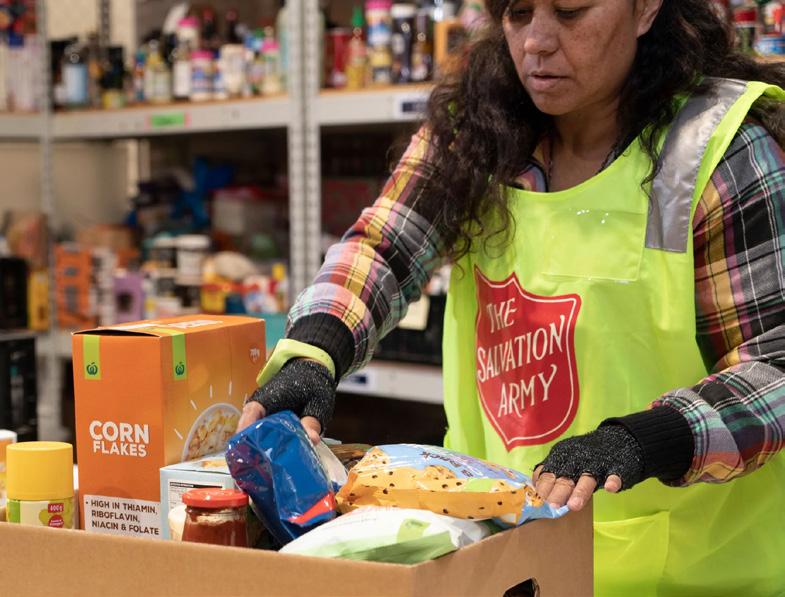
Promises are like crying babies in the theatre, they should be carried out at once.
warcrymagazine.org.nz 5
NORMAN VINCENT PEALE
Isaac and the Egg

Literary Fiction | Bobby Palmer | Headline Publishing Group (Hachette)
‘Isaac stands alone on a bridge and screams. Something screams back.’ It turns out, this something is an egg. The strangeness of this description is what initially drew me into this story, although there is so much more to it than that. The story of Isaac and the Egg discusses some pretty big topics of grief and mental distress, and it’s worth noting that the book opens with some mentions of suicide ideation, but it doesn’t linger there for long. This is a beautiful, sad and strange book featuring a man and an egg-like creature, and their unexpected cohabitation—with some excellent twists along the way—and I heartily recommend it. (Reviewed by Holly Morton-Chong)
The Makanai: Cooking for the Maiko House

Drama | Based on a manga by Aiko Koyama | See it on Netflix (PG)
The nine-episode series follows the story of two best friends, Kiyo and Sumire, who move to Kyoto Japan, to fulfill their dreams to become maikos (cultural performers). Soon they realise they are meant to pursue different paths as Kiyo discovers her passion for cooking, becoming a makanai (in-house cook). Kindness and tenderness are at the core of every episode. It also explores different character stories that inspire both the young girls as they grow into their own. A sense of camaraderie is also formed within the house as they support one another through their different gifts, sharing banter, laughter and good food.
(Reviewed by Nicole Gesmundo)
International Development
The Fabelmans
Drama | Steven Spielberg | See in theatres
In this semi-autobiographical drama of Spielberg’s childhood, we witness through the lens of Sammy Fabelman the young director’s developing love for movie making, amidst a sometimesfraught time of life—in particular, his parents’ relationship and the experience of anti-Semitic bullying at high school. We gain an insight into the director’s early productions—made as a teen— including a train wreck featuring a toy train; The Last Gunfight , a short western made for his scout photography badge; and Escape to Nowhere, a longer war film. This excellent homage to movies also provides a sensitive insight into the director’s own personal life and early years. (Reviewed by David Youngmeyer)
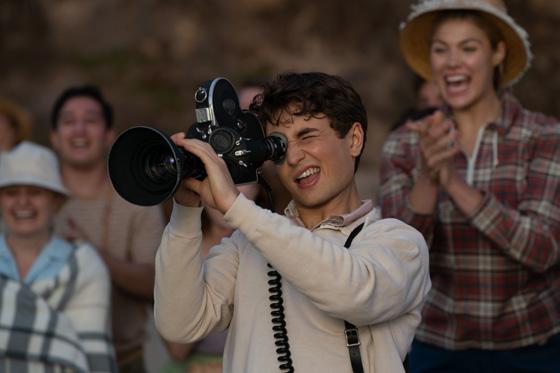
Do You Know This Person?
The Salvation Army’s Papa Clinic is the only reliable health infrastructure in Papa-Lealea and surrounding villages in Papua New Guinea, serving a community of over 15,000 people. A major issue is waste treatment, so the territory’s International Development has provided $7100 to build a septic tank system for the clinic. A WASH project will also run to educate patients about handwashing practices and disease mitigation.
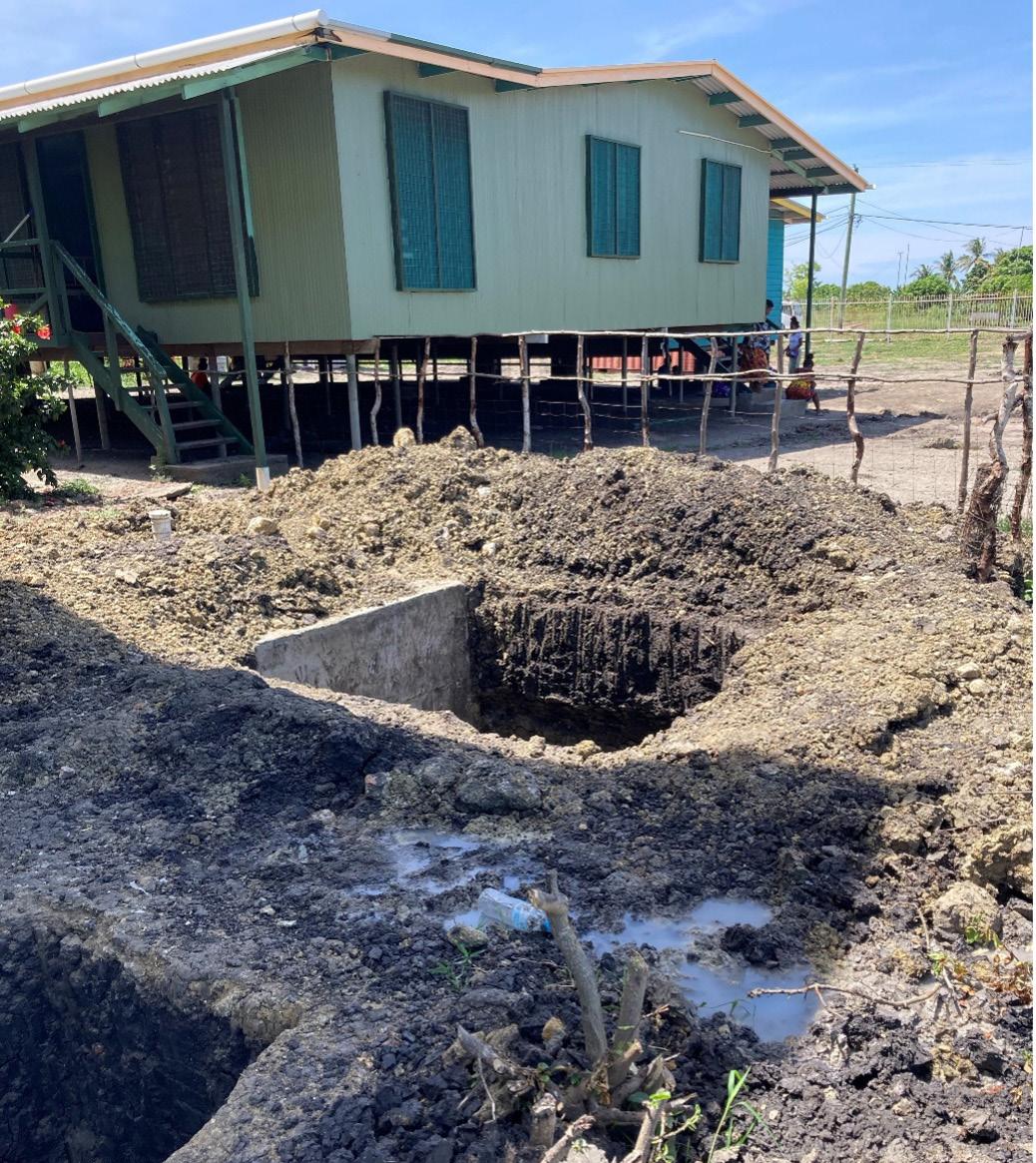
If you recognise the person in this photo, we’d love to hear from you. Email: archives@ salvationarmy.org.nz
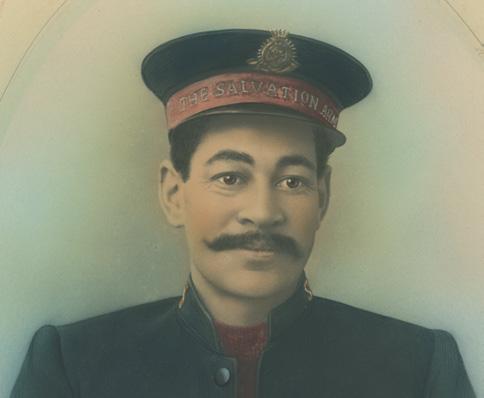
6 Pēpuere February 2023
TOP FIVE Summer Fruit Songs
It’s summer! And that means many things, but best of all, it means that there’s some delicious fruit around. Inspired by that, here are five songs with summery fruit in their titles:

1 ‘Strawberry Fields Forever’—
The Beatles
This song tells of John Lennon’s upbringing in Liverpool, named after the orphanage near his aunt’s house, Strawberry Field (which was run by The Salvation Army).
SALVATION ARMY PRAYER
We continue to pray for the Kingdom of Tonga rebuilding after the eruption; Upper Hutt Corps; Vaini Corps; Vava’u Corps Plant; Waihi Corps; Wairarapa region; Waitākere Central Corps; The Salvation Army Cuba Street; Wellington District Court/Special Circumstances Court; The Salvation Army in Japan and The Salvation Army in Kenya East.
What if…
Henri Nouwen says, ‘half of life is reflecting on what is being lived.’ But intentional reflection with an openness to change doesn’t come easy to most of us—especially not when it comes to our spiritual lives. We can easily get caught in the trap of doing what we’ve always done, or what we think we should do based on what others find helpful. This year what if, we gave ourselves permission to ask some different questions? What brings us life? What spiritual practices have deepened our connection with God? Is there a longing or curiosity to try something new? What might happen if we explored that new practice?
2
‘Pineapple Head’—Crowded House
From a classic New Zealand band, the title for this song (and some of its lyrics) came from Neil Finn’s then-11-year-old son, Liam, who said the song's title when he had a fever.
3 ‘Kiwi’—Harry
Styles
Harry Styles seems to be making a collection of summer-fruit-inspired songs, with ‘Kiwi’, ‘Watermelon Sugar’ and ‘Cherry’ all being hits off his recent albums. He’s clearly a fruit fan.
4 ‘Plum’—Troye Sivan
Although this song is called plum, Troye Sivan actually mentions multiple fruits in this one (peach, tangerine, pear and of course the titular plum).
5 ‘Banana Pancakes’—Jack Johnson
Okay sure, this song is more about the pancakes, but the banana is there in the title, so it counts. This one is in fact about making banana pancakes on a rainy day with your loved ones—how sweet!
INTERNATIONAL PRAYER
• Nigeria—Pray for those oppressed in Nigeria for their faith and gender by extremist groups, including severe violence and unsafe environments for Christian soldiers.
• Eritrea—Pray for Christians facing severe persecution in Eritrea, and for those currently incarcerated for their faith.
• Qatar—Pray for the many Christian migrant workers who face discrimination and violence for their faith, and for the difficulties following the FIFA World Cup last year.
Perhaps it’s time to set aside the new year’s resolutions and listen for God’s invitations instead. After all, resolutions are mostly about willpower, whereas an invitation from God is simply something to receive—and God’s invitations come all year round!
Invitations to consider
• Practise a compassionate gaze towards ourselves instead of a critical glare—try this in front of the mirror when brushing your teeth!
• Practise listening more to others—try saying ‘tell me more about that’ rather than jumping in with your own stories.
• Explore a new form of prayer like ‘praying with the imagination’ or ‘centering prayer’.
• Practise contemplating creation while walking the dog or cycling to work.
• Begin a gratitude journal.
warcrymagazine.org.nz 7
Finding My Whakapapa
Lt-Colonel Ian Hutson grew up in a Salvation Army family in a predominantly Pākehā cultural environment. He writes of the process and path he took in discovering and embracing his cultural identity and Māori heritage.
seem to recall my family had positive impressions of other cultures, including Māori. Coming as I did from a strong Christian background, I had sung songs like ‘Jesus loves the little children, all the children of the world…’—no matter what colour—‘…red, brown, yellow, black and white, all are precious in his sight’. Not to forget The Salvation Army hymn that pointed to a time when people would ‘come from the east, they shall come from the west, and sit down in the Kingdom of God’ (SASB 1011); a hymn taken straight out of the Bible (Luke 13:29). A very impactful and aspirational song of inclusion and something we all probably thought we understood and practised fairly well. However, at the time, I only had a superficial understanding of what this might really mean or even who I was—my identity, my culture.
Māori whakapapa
I seldom had an interaction on any deep or ongoing social level with Māori or other non-Anglo ethnic groups. I had many Māori friends at school, but I can’t remember visiting their homes, interacting with their world, or inviting them to our house for social gatherings. There were few Māori in my Salvation Army church community. You could say that the Māori world was not visible to me; this was all despite our family often talking about the fact that through my mother, we had Māori whakapapa.
One foray into the Māori world came about when our family went to Hicks Bay on the East Coast for summer holidays for four years in a row. We worshipped at The
Salvation Army corps (church) in Te Araroa which was a predominantly Māori congregation. The congregation operated within a very different cultural context than we did. The singing was so different: melodic, slower—beautiful. The wider East Coast world also operated differently. There was an easier pace of life, people riding horses bareback and the obvious predominance of Māori in the surrounding area. I met wonderful people there like Major Prowse, Captains Sam and Eva Medland and Nanny Brown— she impacted me immensely with her amazing smile, warm gracious manner and her coaxing me into saying ‘haere mai’ every time we met. Not to mention the deep Māori and Christian mysticism I noticed she had when she shared the kind of spiritual visions she experienced.
I didn’t know it then, but this was one of the last Māori Ministry corps remaining from an era when there was more Salvation Army work with a specific Māori focus in the late 1890s and early twentieth century. In hindsight, it was a real privilege I didn’t appreciate at the time. This was a glimpse into another world.
Introduction to whānau (family)
Later I met a Māori family in my Salvation Army ministry who invited me into their life. It was an absolute eyeopener for me. They involved me in tangi, unveilings and other social occasions. How Māori went about the process of tangi—even in an urban setting—was so different from anything I had previously experienced. I remember marvelling at how couldn’t I have known
8 Pēpuere February 2023
this completely ‘other world’ existed in New Zealand? It involved different values and practices based on a fundamentally different way of seeing the world.

At that time, I saw Māori who had lost their culture and identity coming alive as they began to rediscover it. From a Christian perspective, as one person put it, ‘I knew God loved me, but now I knew he loved me as a Māori! Just as I was, not conforming to some alien identity!’
Gangs’ cultural identity
Some years later, I participated in an addiction rehabilitation programme for Mongrel Mob members and their whānau. Here I was confronted by individual histories of people who were taken from their families, placed in children’s homes and then, as one gang leader recalled, starting on a journey through borstal and on to minimum- and maximum-security prisons. Mostly Māori, these young men made this dismal and distressing journey with only one constant and visible kind of human support—the other young men who
walked this same path; the same people they bound themselves to in solidarity in their gangs. In an imperfect way, they were seeking redemption from their lifestyle of violence, drugs and despair. They were so passionate about rediscovering their culture and identity.
This encounter reminded me that the bicultural journey includes enriching discoveries of culture and people in ways that cannot be easily described—it must be experienced. However, it also comes with the pain of the huge fracture in racial relationships that has occurred and is too often perpetuated in Aotearoa.
Above: Ian Hutson (left) as a child with his brother Peter (bottom right) and Captain Sam Medland on a Whetumatarau hilltop behind Te Araroa.
warcrymagazine.org.nz 9
I am proud of who I am as a Salvationist with Pākehā heritage and culture, as well as my growing appreciation of my Māori cultural heritage and history.
Looking back to move forward
My bicultural journey has been hugely impacted by hearing the gracious but clear voices of Māori outlining the history of dispossession, alienation and injustice that they have endured and continue to experience. My love of reading history has only reinforced this. I think that knowing our history is so important. It helps us understand how we have gotten to where we are. Too many people seem unaware of what has gone before, making the current tensions seem inexplicable or irrational. How can we progress forward unless we understand and acknowledge where we have come from? In many ways, my own family’s history reflects this fractured history.
Thanks to my mother’s efforts, I eventually began to discover my Māori whakapapa. She discovered that it traced back to the Ngati Pikiahu-Waewae hapu based at Te Tikanga Marae in Tokorangi near the Rangitīkei River. My ancestry includes linkages to Ngāti Tūwharetoa, Ngāti Kahungunu and Ngāti Raukawa iwi.
The family story behind the marriage of William Swainson to Ruku Te Kauki (my tipuna/ancestor) is
intriguing and reflective of our bicultural journey as a nation. William’s father (confusingly also a William Swainson), along with other people, bought land in the Hutt Valley from the New Zealand Company in 1841. It was disputed Māori land that had not been legitimately purchased from Māori. This resulted in one of the first battles or skirmishes between Māori and Pākehā in New Zealand, which took place on the adjacent farm where there was a military garrison, owned by a Mr Boulcott. If some stories are to be believed, the older Swainson held a rather negative view of Māori from then on. This made it all the more surprising that his son, after moving to the Rangitikei area, would go on to marry a Māori woman. Having had several children together, William and Ruku parted ways for some reason, most likely because of external pressures causing hardening racial attitudes on both sides in the face of the Land Wars.
It was a moving experience to visit Te Tikanga Marae and meet whānau who (like me) descended from the marriage of William Swainson and Ruku Te Kauki and see the graves of Ruku’s whānau in the urupa (burial site); then visit the other side of the river and see the mansion owned by the Marshall family, descendants of William Swainson, and the church graveyard next door with the graves of the Swainson and Marshall families; my bicultural heritage.
My Salvationist and bicultural identity
My bicultural journey has also been interwoven into my Salvation Army ministry. I can think back to a Māori Salvationist Sally Rankin, who came to a Māori Ministry marae visit I organised for Salvationists in 1989. I can see her standing on the marae in her
 Above: Lt-Colonel Ian Hutson (centre—wearing red) with members of The Salvation Army Māori Ministry and Mongrel Mob gang members as part of the Army’s work in addiction rehabilitation.
Above: Lt-Colonel Ian Hutson (centre—wearing red) with members of The Salvation Army Māori Ministry and Mongrel Mob gang members as part of the Army’s work in addiction rehabilitation.
10 Pēpuere February 2023
…as one person put it, ‘I knew God loved me, but now I knew he loved me as a Māori! Just as I was, not conforming to some alien identity!’
Salvation Army uniform saying that she had had a dream that The Salvation Army part of her, which meant so much to her, had come together on a marae with the Māori part of her, which also meant so much to her. I can still see her waving her rakau korero (walking stick), wearing her Salvation Army bonnet, outside the wharenui (meeting house) and saying, ‘Today my dream has come true’.
I am proud of who I am as a Salvationist with Pākehā heritage and culture, as well as my growing appreciation of my Māori cultural heritage and history. I, like Sally, desire to see our Army come together as one, but without looking to assimilate all cultures into a dominant culture.
anger. Honest and respectful dialogue is necessary. We need to listen to each other and listen well. We need to enter each other’s world. It is like a marriage where both parties commit to sticking with it.
After all, Te Tiriti o Waitangi properly understood, is a covenant that binds us together in the sight of God.
Prayer for Waitangi Day
Creator of all people, we honour your glorious design visible in our difference displayed as your delight.
We are your people, called to reflect your light and breathe life wherever there is hurt and pain, bringing hope and restoring mana.
May we hear your call to repentance, for the grief caused by colonisation. Grant understanding to those of us who have not fully grasped the true extent of our privilege.
I have been a part of The Salvation Army Māori Ministry for some time now. It is a precious aspect of my bicultural journey. I have learned so much about Māori cultural concepts such as manaakitanga and whakawhanaungatanga—concepts of hospitality, welcome, embrace and belonging in community; concepts so relevant and needed within Salvation Army ministry and fellowship—for all cultures. There are and have been some incredible people doing important work in this area. What an amazing ministry—to see Māori Salvationists, volunteers, staff and clients in our corps and social services glimpse the possibility that The Salvation Army Te Ope Whakaora might embrace them as they bring with them their Māori culture, language and identity.
This Waitangi Day we can all reflect on how this journey has gone and is going. It shouldn’t be done in a way that glosses over the injustice and inequity Māori have and are experiencing. There will be pain and some
Open our eyes and our arms, Lord, that we may see and embrace your vision for reconciliation, and your longing for the healing of those who have been wronged.
Open our ears and our hearts, Lord, that we may hear and know your desire that we love one another, celebrating all you have made together, as your body...
Amen.
I remember marvelling at how couldn’t I have known this completely ‘other world’ existed in New Zealand?
warcrymagazine.org.nz 11
Amplify: Together Again
Amplify 2023 kicked off on Wednesday 11 January and ran through until Sunday 15 at the usual venue of Silverstream Retreat Centre. After a soggy beginning, the weather played ball beautifully, and the week was nothing short of a summer stunner. You really can’t beat Wellington on a good day—not when you’re at Amplify anyway! Jules Badger reports.
‘There was so much excitement about being able to come back together following Covid-19 interruptions last year. The vibe was so awesome and seeing the young people connecting with one another again was so good. We had a lot of new young leaders and so we just really wanted to make camp fun this year,’ reported Camp Director Jim Downey.
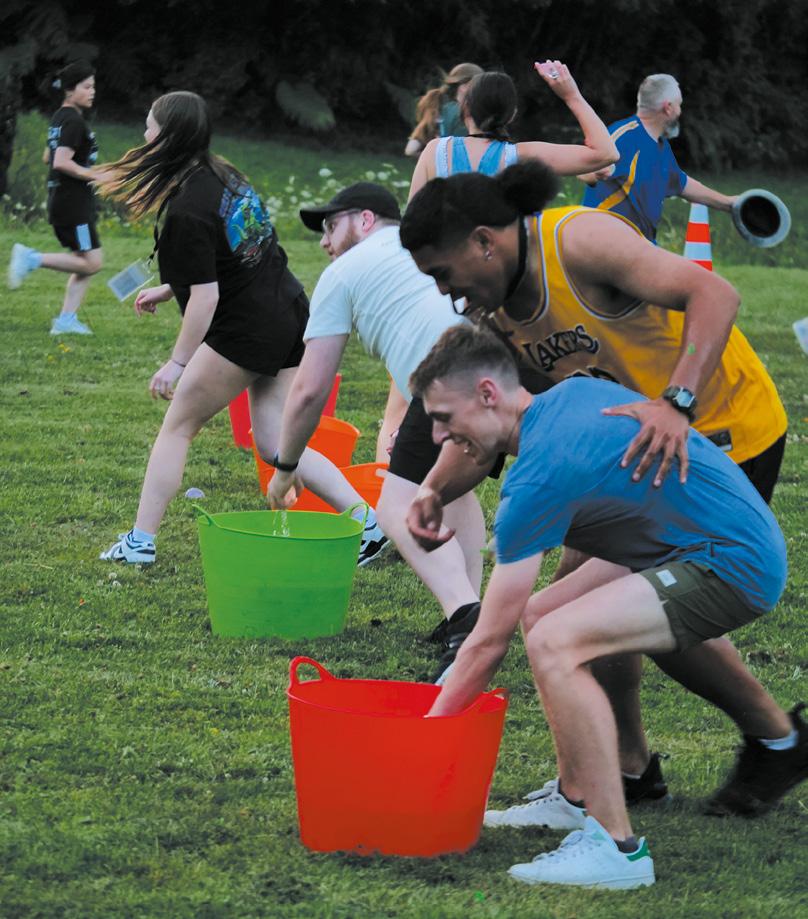
Passing the test
While you might think that after 14 years of Amplify experience nothing would faze veteran coordinator Vanessa Singh, with Covid-19 rearing its ugly head again this summer, precautions needed to be taken. As much as everyone loved Amplify Locals (2022 online), no one wanted a repeat! The result was the shortening of the usual seven-day camp by two days, and the testing of every camper upon arrival.
‘Obviously we were concerned that there would be positive tests, but everyone tested negative—that can only be the power of God! If God wants something to go ahead and to bless something, he makes a way,’ affirmed Vanessa.
Something old, something new
While the shortened camp meant a few things needed to be tweaked, Territorial Youth Secretary Mat Badger said, ‘The spiritual formation
that took place was as moving and profound as ever’. The usual major and minor options for campers were combined into a slick line-up of ‘Creative Streams’, with campers choosing just one to focus on. The traditional exhibition night was replaced with ‘the festival’ on the final evening—complete with food trucks and craft stalls, a pop-up Family Store, a mullet hair salon and an open-air stage which had no shortage of enthusiastic performers throughout the evening.
Another new initiative was the regular ‘all in’ games in the afternoon; however, plenty of the annual classics remained like the Explorers Café, small groups, panels and workshops, the Big Game and what’s been reported as ‘the most fun quiz ever’ on Thursday night. And, of course, the never-ending casual games of volleyball and basketball that made up the background of camp life.
Monumental messages
Night church featured two fantastic speakers—one homegrown and one from across the ditch. Australian Territorial Youth and Young Adults Secretary Aux-Lieut Adam Purcell was powerfully impacted by younger preacher Maddy Lopdell (from Cambridge Corps): ‘When you have a homegrown hero like Maddy step
up like that—someone who has been coming to Amplify for years herself? Just wow. Seeing the mechanism of leadership empowerment come through was a special moment for me. Maddy has been developed and activated and here was this moment for her to lead at Amplify, just as she has been led over the years.’
Maddy preached from Joshua and spoke about the building of altars to remember God’s faithfulness and promises:
‘The presence in that Ark of the Covenant has not lost an ounce of its power since it created dry ground in a river that was flooding. And his power, here with us tonight, applies in the very same way to his ability to keep the promises he has made to us: … as I was with Moses, so I will be with you … who I was

12 Pēpuere February 2023
then, is who I am now. And that hasn’t changed since Joshua. He is still who he was … So, as I was with your youth leader, so I will be with you. As I was with your parents, so I will be with you. As I was with your friend, so I will be with you.’
Adam himself took a well-known Bible story which the Holy Spirit illuminated in a fresh way for yet another generation. He went all out by putting his body on the line which provided a great illustration no one will forget in a hurry; Adam wasn’t prepared for the bullrush battle, but David certainly was when he faced Goliath. Adam pulled no punches as he charged campers with the task of picking up the stones that only this generation of The Salvation Army can wield in the battle. A challenging message for older generations
present and those listening in on the livestream.
A new generation of leaders
Olivia Stanton (Sydenham), and Georgia Mellsop (Wellington South), were both not only first timers at Amplify, but first-time leaders. Both were blown away by the Amplify experience.


‘There are so many highlights,’ said Olivia, ‘but now I understand why Amplify is so special. It’s such a safe space for young people to not only have a go at creative things, but also to be vulnerable and honest. The testimonies I’ve heard have been incredible, and to see young people share big stuff because they feel safe—it’s amazing. God is here.’
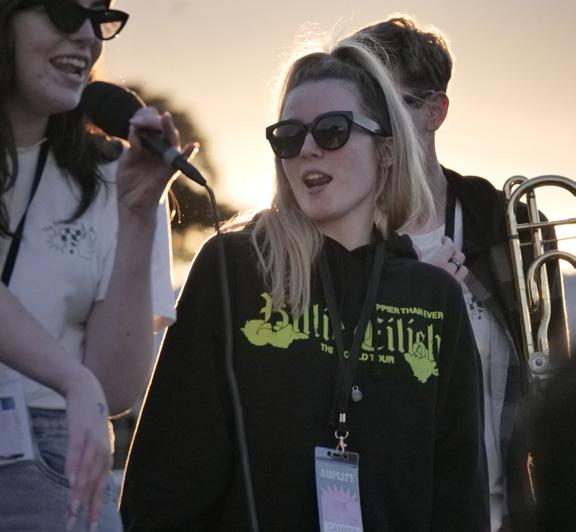
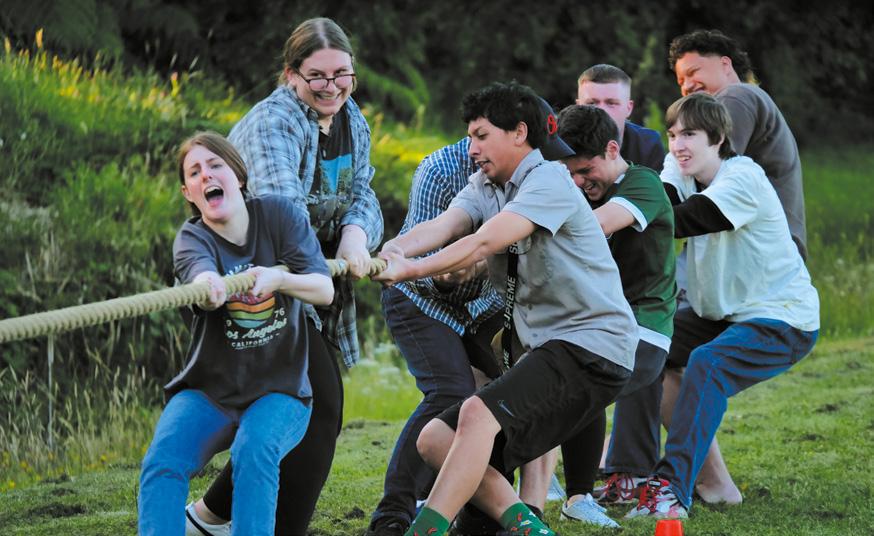



Georgia observed that, ‘Some of the young people have brought really big
stuff with them into camp—heavy stuff. Amplify has massive potential to be such a significant life event. And for me, as a leader, camp has been both stretching and affirming. I have my own stack of rocks to look back on so there’s not so much tension in the stretch and I can be grateful that God has led me to this point.’

Summer Events Intern Annika
McLeod was almost lost for words as she formally wrapped up camp:
‘My God moment was seeing what God can do in just a few days. As I looked out across the room seeing people recommitting themselves to God, or choosing to follow him for the first time, or praying for others … I got teary-eyed. I can’t even explain it. God is so good.’
warcrymagazine.org.nz 13
Photos by Georgia Eilering and Kris Singh.
From the campers themselves!
Kendra Todd
15, Cambridge
Music Performance: 1st Amplify
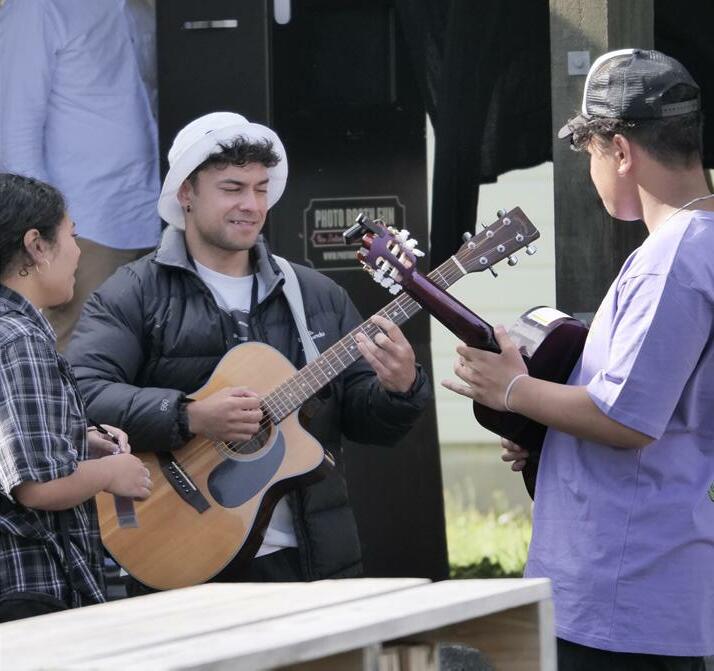
Epic Moment: The festival— performing and dancing with everyone up the front and having fun.
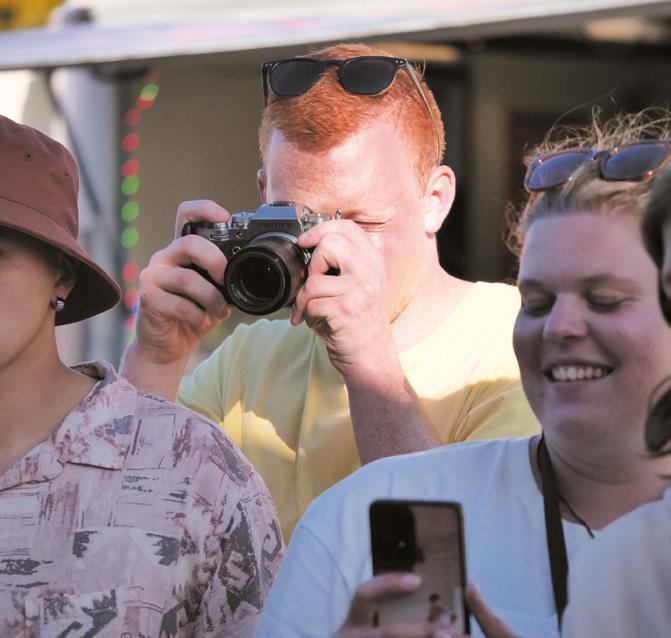
Camp Legend: Sophie from Whakatane—she’s so awesome! A great role model and good to talk with.




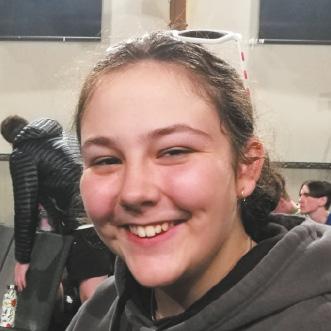
Personal Challenge: I can be antisocial when I don’t know people, but everyone has been so warm and welcoming and that’s helped me get over that challenge.
God Moment: When Maddy spoke about Joshua, and God said ‘I will be with you as I was with Moses’. Surreal that the same God who was with Moses is with us—with me.
Tia Tofilau
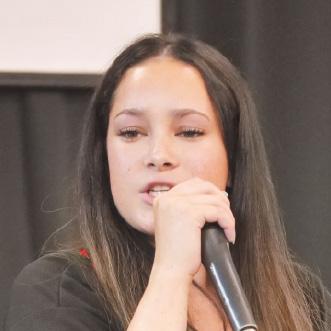
16, Hutt City
Music Performance: 2nd Amplify
Epic Moment: Worshipping with everyone, and singing and dancing together.
Camp Legend: Everyone I’ve met! It’s been so good connecting and hearing about their journeys.

Personal Challenge: It was a bit daunting and weird coming back to camp after such a big break. Covid-19 really affected my relationship with God, so it’s been good to be back with people my own age.

God Moment: One of my friends had their first God moment so that was my God moment!
Emily Bray
18, Cuba Street
Dance: 5th Amplify
Epic Moment: Being back at Amplify! It’s always such a great start to the year being able to refresh my faith in God and get ready for the year ahead.
Camp Legend: Anton! When our church all prayed together, he prayed specifically for me and my family. I felt understood and included.
Personal Challenge: I have a whole bunch of anxiety and I find comfort in it because it’s so familiar. It’s not easy to accept that I can be happy. But at the festival night I realised that I want to be happy because it’s a lot better for me.
God Moment: After Maddy spoke, our church sat in a circle and prayed together. It was so good to feel God’s presence together—to feel safe enough to share what was going on for us all.
14 Pēpuere February 2023
Kruz Harrison
14, Hutt City

Sports: 1st Amplify
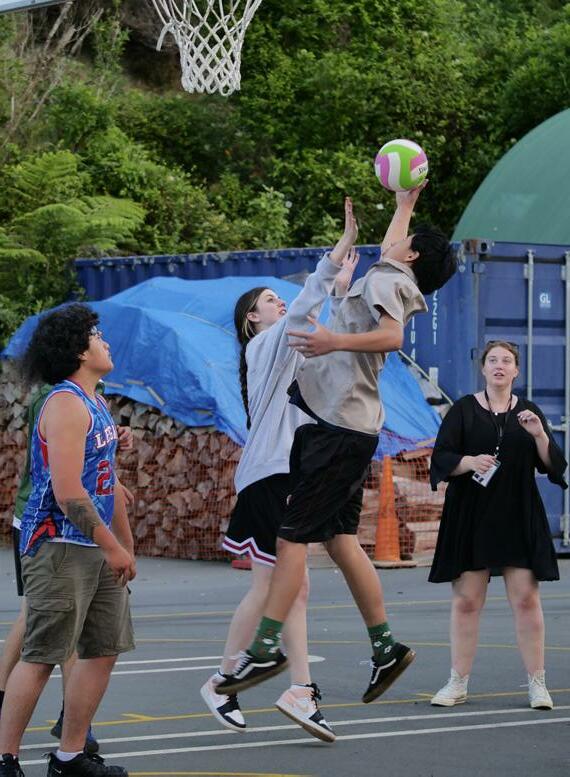
Epic Moment: After Maddy’s message we all prayed together, and it was so good to feel God like that with people I’d only met two days before—now we are like brothers!
Camp Legend: Eugene Kim. He’s a real inspiration. I look up to him a lot. He’s a very good leader. He was there for me when I was too scared to share my testimony. He gave me the strength so yeah—legend!
Personal Challenge: Times when people were emotional or upset and I had to step up and pray for them. I felt like Eugene for a minute!
God Moment: The prayer night—I felt God was there with me. I felt free and God lifted me up through the people around me and I felt his presence.
Tamzin Ling
18, Albany Bays Dance: 4th Amplify
Epic Moment: Dancing in the festival!
Camp Legend: Most of the leaders— I have been so inspired by how they lead and help us on our journey.



Personal Challenge: Knowing that I can always find my way back to God no matter how much I wander.
God Moment: Friday night church. I thought I had tears on my cheek, and I went to wipe them away, but then it felt like someone was holding my chin. I could feel the warmth of a hand—I’ve never felt anything like that before and don’t know how to explain it other than God. But I felt myself grow in that moment.
Peter Montgomery
24, Wainuiomata

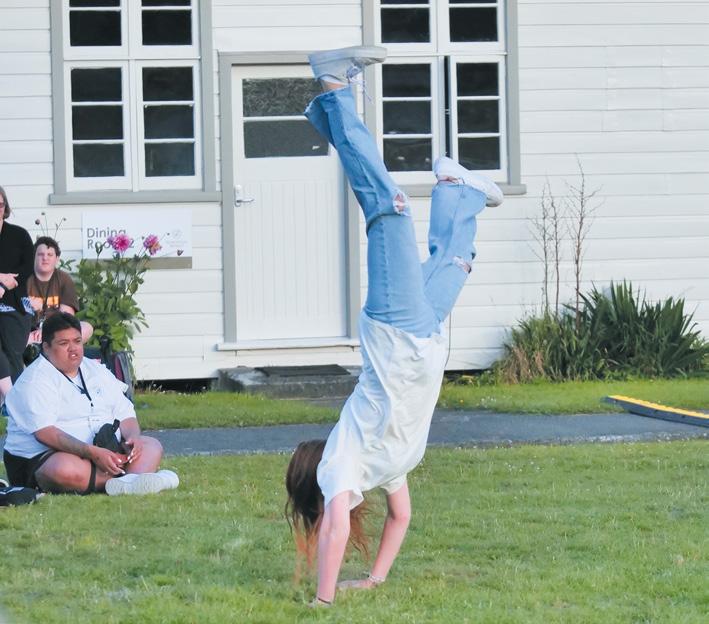

Filmmaking: 6th Amplify

Epic Moment: The past few years have been so depressing! Connecting back in and catching up with people—getting involved again. Reconnecting. Yeah. Epic.
Camp Legend: Raymond. Seeing the generations step up and that someone like Raymond is still here— still faithful—that’s legend.
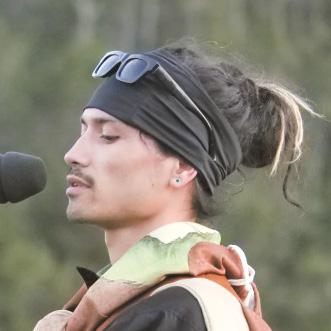
Personal Challenge: The spiritual pathways test we did in small group—my top was ‘contemplative’ and that really does relate because I’m a watcher and observer. A quiet speaker. Yeah. That was reassuring.
God Moment: I have been touched by the talent in the group this year. And whether that’s self-taught or whatever—they’re praising God with their talent.
warcrymagazine.org.nz 15
Te Tiriti o Waitangi is a Covenant
There are a number of references in the Bible to covenant, including where God made an everlasting covenant with Israel, his chosen people. Covenant is the formalisation of a relationship which has mutual responsibilities and implies an everlasting or continued protection of that relationship. It is unconditional and binding.
Te Tiriti o Waitangi is a covenant and was seen as such by Māori chiefs, who in good faith entered into and signed it, expecting that the principles and commitments would be honoured. As we know, it wasn’t very long before the Crown broke the covenant; an early example being the 1846 New Zealand Government Act where land not registered would automatically be vested to the Crown, a blatant breach of Article Two of te Tiriti which guaranteed Māori full, exclusive and undisturbed possession of their lands, forests and fisheries and other property for so long as they wished. Over the years to follow, many breaches of te Tiriti occurred, frequently enshrined in legislation, contributing to the inequalities and inequities Māori experienced and that still exist today.
Te Tiriti is as relevant today as it was when entered into in 1840, and The Salvation Army in Aotearoa New Zealand upholds and is committed to Te Tiriti o Waitangi as the covenant on which our nations bicultural partnership is established, acknowledging the principles of partnership, protection and participation.
Within He Waka Eke Noa (all of us together), our Territorial strategic framework, our commitment to Te Tiriti o Waitangi covenant and partnership underpins and is woven into our three strategic priorities of increasing our mission impact, being a great place for people to belong, work, worship and serve, and long-term sustainability. We must and will journey together in Christian love as Jesus commanded in John 13:35 ‘By this everyone will know that you are my disciples, if you love one another’. Honouring and committing to Te Tiriti o Waitangi is an outworking of Jesus’ command.
Colonel Gerry Walker Chief Secretary
John 13:34-35
A new command I give you: Love one another. As I have loved you, so you must love one another. By this everyone will know that you are my disciples, if you love one another. (NIV)
He ture hou tāku ka hoatu nei ki a koutou, kia aroha koutou tētahi ki tētahi; kia rite ki tōku aroha ki a koutou, waihoki kia aroha koutou tētahi ki tētahi. Mā konei ka mātau ai te katoa, he ākonga koutou nāku, me ka aroha koutou tētahi ki tētahi. (PT)
E dua na vunau vou kau sa solia vei kemudou, Mo dou veilomani: me vaka kau sa lomani kemudou, mo dou veilomani talega vakakina. A ka oqo era na kila kina na tamata kecega ni dou sa noqu tisaipeli, kevaka dou sa veilomani. (FOV)
Aur ab ham tumme ek nawa hukum deta hei, ek dusra se prem karna. Jeise ham tum sab se prem kara wahi rakam tum ek dusra se prem karo. Agar tum ek dusra se prem karega to eisehiyeñ sab log jaani ki tum sab hamaar chela hei. (FRHNT)
Oku ou tuku ae fekau foou kiate kimoutolu, Koeuhi ke mou feofaaki kiate kimoutolu; bea hage ko eku ofa kiate kimoutolu, ke mou feofaaki foki kiate kimoutolu. I he mea ni e ilo ai e he kakai kotoabe ko eku kau akoga akimoutolu, o kabau te mou feofaaki kiate kimoutolu. (TWB)
O le poloaiga fou ou te tuu atu ai ia te outou, ia outou fealofani; faapei ona ou alofa atu ia te outou, ia fealofani foi outou. O le mea lea e iloa ai e tagata uma lava o o‘u soo outou, pe afai ua outou fealofani. (SOV)
16 Pēpuere February 2023


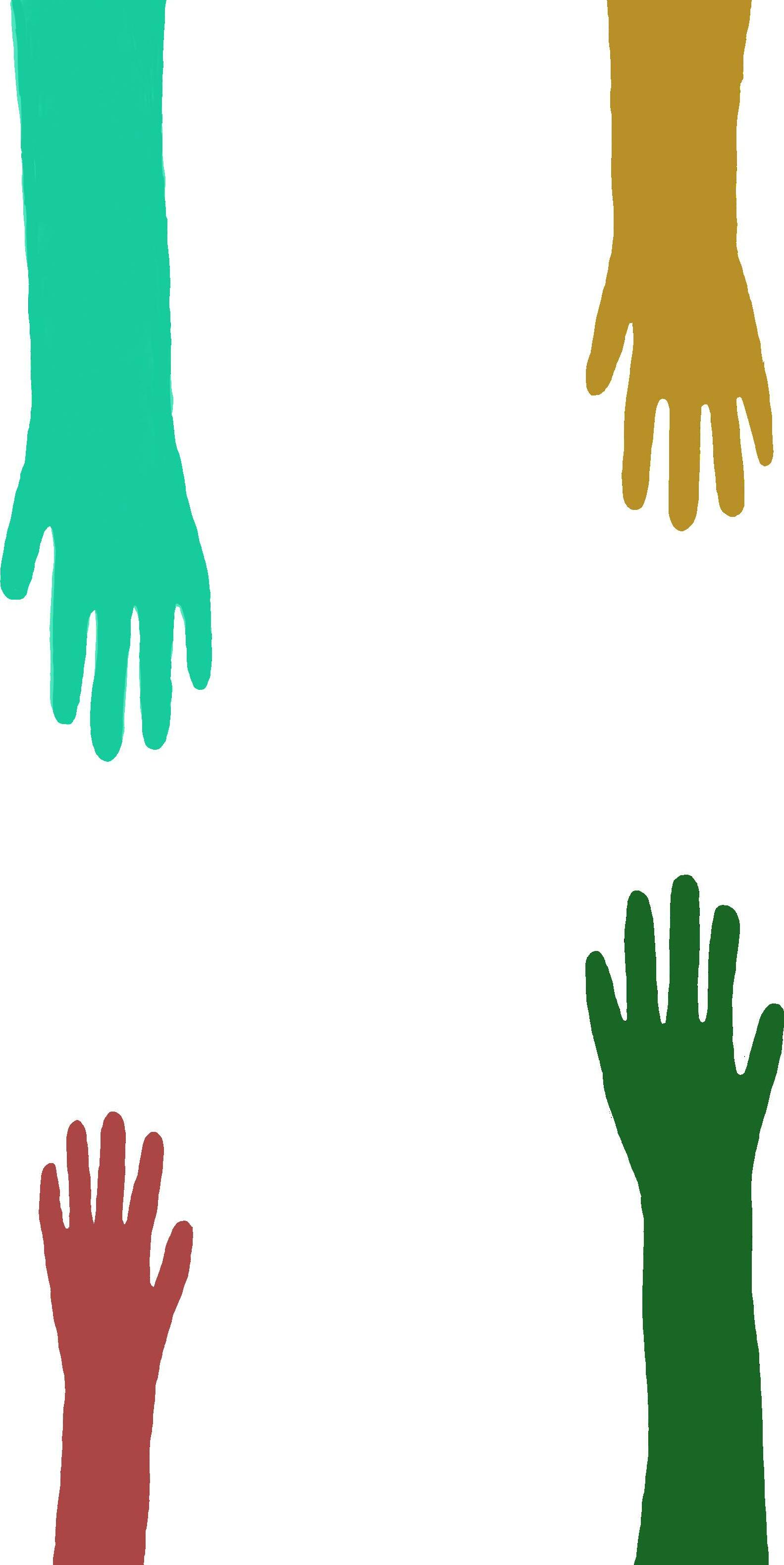
JOHN 13:34
ONE ANOTHER
Art: Nicole Gesmundo
Rotoroa Island Transformations
Following a long history as the site of a Salvation Army addiction treatment facility, Rotoroa Island is today a native tree-covered wildlife sanctuary. David Youngmeyer reports on the transformation of this jewel at the heart of Auckland’s Hauraki Gulf.

In 1907, The Salvation Army began using Pakatoa Island, a small island in the Hauraki Gulf, as an ‘inebriates retreat’. Quickly realising that the 24 hectares of space was going to be too small for future demand, The Salvation Army looked to the neighbouring 82-hectare Rotoroa Island, which was purchased in 1908 for a little over £4012.
By 1911, men who were previously placed on Pakatoa Island were transferred to a new purposebuilt institution on Rotoroa Island. Pakatoa Island continued as a similar facility for women until 1942, with that island being sold in 1949.
Drunkards Act
When Rotoroa Island first opened it was registered as a certified
inebriates home under the 1906 Habitual Drunkards Act: in effect, men arrested for drunkenness could be committed under the Act to Rotoroa Island for up to two years.
Up until the 1970s, the rehabilitation programme consisted mainly of work therapy, good nutrition, relaxation, informal counselling and, of course, enforced abstinence from alcohol. After a few weeks of detox, all men were assigned work of some sort, be it as cooks, cleaners, gardeners, or farm hands, doing carpentry, painting or assisting with the boats.
Further history of the island and addiction treatment can be found in Set Free: One Hundred Years of Salvation Army Addiction Treatment in New Zealand 1907–2006 by
Majors Don and Joan Hutson (Flag Publications).
End of an era
Almost 100 years of Salvation Army addiction treatment on Rotoroa Island ended in December 2005, with more than 12,000 people having benefitted from the programme. The Bridge rehabilitation services were transferred from the island to the mainland, where they were part of strengthening communitybased services.
The decision, notes an article in the War Cry of December 2005, was made after some three years of deliberation by Salvation Army leadership who consulted with experts in the field, both inside The Salvation Army and externally.
The transfer of services off Rotoroa Island coincided with the addition of two new services in the Auckland suburbs of Waitakere and Manukau, with both residential and day programmes.
Providing treatment facilities in the community rather than in remote locations reflected an evolution in the philosophy of addiction treatment. The
then-National Manager Addictions and Supportive Accommodation Major Lynette
Hutson (now Lt-Colonel) told War Cry in 2005: ‘These new Salvation Army services are located in the hearts of the communities they serve. People previously unable to access addiction services will be able to take advantage of our proximity and the ongoing support we provide.’
Following the closure of addiction services on the island, new uses for this unique environment were progressed.
18 Pēpuere February 2023
Photography: Rotoroa Island Trust
Transforming the island
The Rotoroa Island Trust was established in 2008, thanks to a generous gift from Annette and Neal Plowman, with the aim of the island being a public sanctuary for everyone to enjoy.
The Trust purchased a 99-year lease from The Salvation Army, and the island underwent a significant transformation before opening to the public in 2011. The Trust is very much a partnership, including among its trustees two Salvation Army representatives.
‘The Rotoroa Island Trust is continuing the island’s special legacy of recovery and renewal; it truly is an island of restoration,’ says Andrew Poole, Chair of the Rotoroa Island Trust.
The restoration work has included the removal of over 20 buildings, and the replacement of more than 20,000 pine trees and macrocarpas with around 400,000 native trees.
A pest-eradication programme was successfully carried out so that today the island is considered predator-free. This has allowed the translocation of a number of endangered species to the island, including two breeding pairs of takahē and the creation of a creche for kiwi chicks.
The creche works by bringing Coromandel brown kiwi chicks to the island when they are about 24 days old, offering a safe place to grow until they are about two years old when they are either translocated to another Hauraki Gulf island or returned to Coromandel. The initiative has improved the kiwi survival rate from five percent to as high as 60 percent.
The absence of predators along with the regenerating forest has seen many other bird species make the island their home.
Island open to the public
‘For over 100 years, Rotoroa was offlimits to the public,’ says Jo Ritchie, ecologist and ops manager at the Rotoroa Island Trust.
‘Today it is open to all as a wildlife sanctuary where people can wander at will. Being predator-free means takahē, kiwi, tīeke (saddleback) and other endangered species are thriving; visitors will always see or hear some of these taonga.’

The Trust has also created a museum, which includes the history of the island, restored caretaker cottages into holiday home accommodation and converted the former superintendent’s house into affordable shared accommodation. The island is also a popular location for retreats, conferences and teambuilding activities.
Visiting the island
Rotoroa Island is open every day, whether for a day trip or an overnight stay.
Transport to the island is by Fullers360 Ferry, water taxi or private boat.
Visitors can explore the many walking tracks, see the wildlife, swim at the stunning safe beaches, visit the chapel and discover the island’s fascinating history in the small museum.
Guided walks with an island ranger are a wonderful 90-minute introduction before heading off to explore.
For more information, visit the Rotoroa Island Trust website: rotoroa.org.nz and ferry bookings: fullers.co.nz
warcrymagazine.org.nz 19
Photography: Rotoroa Island Trust
Real Love and a Place to Belong
Sandra Terris volunteers her time in many ways at Palmerston North Corps: in the foodbank, the soup café, the playgroup and Just Brass. However, she shares that her journey to get there with her family involved a lot of heartache and even homelessness along the way.
I’m married to Shane, and the mother of six children. I wasn’t brought up in a Christian home. I was brought up in Wainuiomata, born and bred. I had my first child at the age of 18 so that was quite young. It didn’t stop my lifestyle of drinking and partying at that stage because I was young and thought I still had it all. When my baby was six months old, my relationship with his father broke down, and that’s when it hit me hard: I’m a mum. I’ve got to really step up now because I could have lost my child
I met Shane at the age of 20, and really found out what love was. I then had another three children. Shane and I ended up getting married in Whanganui, where we were living at that stage.
An army to feed
Soon after that Shane got offered a job and we returned to Wainuiomata. Things were okay at first, but after, we were not in a good place. My dad died around this time which really hit me hard. He was my rock; he was my everything. My reaction was to turn to drugs just to dull the pain I was feeling at that stage—not that it did, but I hoped it would. It actually made things a whole lot worse.
I ended up becoming pregnant with twins. I thought, how will we cope, how will we manage with another? It was a very traumatic time, and we weren’t even coping with the kids we had. But it went well, and we have our beautiful twins. So then we had an army of mouths to feed which made things harder! Shane was laid off from his job at that time too, so that put the stress at pretty high levels and we wondered where we could turn.
Our newborn twins went into intensive care at Lower Hutt Hospital. I had to express my milk and Shane
walked it all the way to Lower Hutt Hospital from Wainuiomata as we had no car and I wasn’t allowed in intensive care due to sickness.
At that stage we started to lose parental control over our older children. We weren’t coping, so how could they? We had no purpose in life. It was like we had drifted off track. We lost our rental home. We ended up camping in my mother’s lounge—six of us at the time—marae style.
Being in a black hole
One morning when our twins were aged three, one of them started having seizures. We rang an ambulance, but they said it was nothing serious. By the next day we found ourselves walking down to the Wainuiomata doctors because she had no feeling in her legs. It was quite scary. It put us back in that black hole again.
She was admitted to Lower Hutt Hospital for weeks. She had Guillain-Barre syndrome which affects one to two out of 100,000 people. She spent four weeks in Lower Hutt Hospital completely paralysed from the
20 Pēpuere February 2023
It makes us feel so blessed and honoured that God loves us and brought us here and that he’s given us the gift of love in all he’s taught us—patience, resilience and empathy for others, because God continually gives to us.
feet up. She couldn’t eat. She couldn’t sit up. After that she had to have a blood transfusion which was given to prevent the condition spreading. We had to split our family up and ended up living in Auckland with her at the Wilson Centre for Disabled Children for seven months. When we returned home, we moved into a rental but the wheels on our daughter’s wheelchair kept falling through the floorboards. The house was condemned and we ended up in emergency housing in Palmerston North, which wasn’t our choice of city—but it was God’s choice. I was pretty scared and felt alone. We were at our wits’ end.
It was at this stage we went to Palmerston North Corps because we were so desperate for some food relief. We were greeted by a lovely couple of people down at the foodbank. They were such loving and caring people who touched our hearts and brought us to tears of gratitude. As a rapid result of that meeting, and budgeting and counselling sessions, we became volunteers at the foodbank. We also ended up going to the community meals they were holding. The corps officer, Captain Michelle Lee, would read a devotion, and every day we went, I pondered little things that she would talk about, godly things which I didn’t know at that stage.
A new direction in life
I found myself looking out of this window at home saying, ‘Lord, is this really you?’ Kind of catching myself thinking, no, it’s not you, Lord. And the same thing happened the next day. I found myself looking out that window, tears coming down my eyes, saying, ‘Lord, this must be you. I haven’t felt anything like this before, Lord. The love that everyone’s given us, this must be you.’
Then little things in our lives kept falling into place, like changes in our kids and changes in me and my husband—the way we spoke.
We ended up going to church and that was a big thing for us. Shane and I went on to become church volunteers. If it wasn’t for walking into church that day, we wouldn’t be a family now. When we walked into church, it gave us a new feeling of security. We
felt loved; we felt companionship from the wonderful people there who showed us love and care. It’s real love. You can go somewhere and people can be nice, but I’ve actually never been shown real love. Not being judgmental, just real love. We felt a new direction in our lives, a new purpose. We felt love for each other returning—we hadn’t felt that in a very long time. We felt better equipped to be parents. The messages we heard each Sunday felt like they were especially for us. It makes us feel so blessed and honoured that God loves us and brought us here and that he’s given us the gift of love in all he’s taught us—patience, resilience and empathy for others, because God continually gives to us. I still volunteer to this day at church and love it! I wouldn’t have it any other way.

warcrymagazine.org.nz 21
What it Takes to Be a Chaplain
Gill Fiford is a student from Alpha Crucis College studying chaplaincy. She decided to do her internship experience with Major Josevata (Joe) Serevi, who works with people in the court system and on the streets, learning the ins and outs of what it takes to be a chaplain in the community.
WORDS Hope Burmeister
ill is a mum of three from Wellington and a Christian. She is undertaking a two-year diploma in chaplaincy, and as part of her first year is required to do an internship. She contacted a chaplain she knew from Wellington who connected her to Captain Shaun Baker, chaplain at The Salvation Army Territorial Headquarters. Shaun suggested doing an internship with Major Joe Serevi who is a mission officer for Street Ministry and a court officer in Wellington. This began a six-month mentoring relationship between Gill and Joe to learn more about being a chaplain to those in the court system and on the streets.
The calling to chaplaincy
Gill first felt the call to chaplaincy four years ago and kept putting it off, but always felt the Holy Spirit nudging her over that time. For most of her life, people would approach her and open up to her about what was going on in their lives. The turning point for Gill was God speaking to her, despite her putting it aside for so long: ‘God’s saying it’s time to activate you. You are my hands and feet on the ground’. She shared this calling with a leader in her church and they encouraged her to take a leap of faith and pursue chaplaincy. The next day she rang Alpha Crucis College to enrol in their chaplaincy course. They told
her the course was closed and had already started; however, miraculously there was one space left for her.
‘If the Holy Spirit’s in there with you, then the Holy Spirit makes the path easy … so I’m just seeing where this Holy Spirit-led ride is going to take me,’ she shared.
The practical internship experience has been invaluable for Gill: ‘It’s been 150 hours of observing Joe and seeing what he’s doing, the interactions and how God’s moving, and picking up on the field skills that you wouldn’t otherwise learn through studying’.
Building trust with people
Gill shadowed Joe to his meetings with people on the street who were homeless or displaced, with addictions or other issues. They also went to court to support people through legal proceedings. Joe runs a life group every Wednesday with people in the community and Gill was blessed to witness the changes in these people and to see their genuine heart for God.
One story that stood out for Gill during the internship was when they went to St Peter’s Church to meet with a lady who Joe had been working with for two years. He had found accommodation for her when she was homeless. She came into the church bundled up in coats and a hat on a freezing day. Gill said she had a
22 Pēpuere February 2023
beautiful soul and was in the chaplaincy room sharing what was on her heart. ‘It naturally evolved into her giving her life to the Lord. Joe did a karakia (prayer) and it was beautiful, and she was in tears … it was such a holy moment … she walked out, and you could just see she was radiant and looked lighter’. But the point of salvation doesn’t happen overnight. Although Gill has a passion for sharing Jesus straight away, she now knows it is a slow, evolving process of meeting physical needs first, then spiritual needs second. ‘You work with them for a long time, demonstrating Jesus and suddenly it’s time for the final element which is spiritual because they’ve got the rest of their needs in order.’ She sees it as a natural progression of them getting to know the chaplain who meets their natural needs first, before their heart can open up to meeting with God.
Another thing Gill has had to consider is how she moderates her words depending on her audience; for example, if a person has been to church before, she could mention God earlier in the conversation,
whereas if they haven’t ever been to church, she would wait. ‘When you’re listening, that’s how you put a picture together to decide how far you go or don’t go and what you say,’ she said.
She has also learned that chaplaincy is ‘very holistic, fluid and not time-bound’. A street chaplain can’t restrict a meeting to a half-hour slot; they must be willing to sit with someone for as long as that person needs.
A chaplain must, very importantly, first build trust with their client. Some clients may not talk much or want to open up, which is why it’s important to start with light conversation to get them comfortable first. Joe has taught Gill that sometimes you need to sit with
 Above: Gill Fiford (right) with Major Joe Serevi.
Above: Gill Fiford (right) with Major Joe Serevi.
‘No one day is the same.
warcrymagazine.org.nz 23
Every day is so different, and you can’t plan because you’re dealing with people like shifting sand…’
them and wait for them to ask for what they need, as the chaplain can’t assume what they need if the client doesn’t say.
Over six months, Gill has witnessed the various needs and grief in people, and learned that it’s important a chaplain responds appropriately depending on the client’s circumstances. Whether they are on the streets, in prison or going through a court process, a chaplain always adapts.
Taking the ministry outside the church
In Joe’s time with Gill, he has encouraged her to think more about the purpose of chaplaincy and what it means to her, before beginning her journey as a chaplain.

For Gill, chaplaincy is about ‘taking the ministry outside the walls of a church’, whatever ministry is needed for people. She mentioned how, before studying chaplaincy, she would meet people while walking her dog who would share the issues they were having, including some heavy traumatic experiences. She said these people weren’t homeless and didn’t need their physical needs met, but rather their emotional needs. Meeting both physical and emotional needs are equally important in chaplaincy.
Chaplaincy is also ‘offering comfort and shining like Jesus shines’, according to Gill. It isn’t always about telling someone about Jesus but allowing the Holy Spirit to minister to people. She believes every meeting is God-appointed: ‘Nothing is by chance or by accident. It’s there by design. Let the Holy Spirit go first and then follow along behind.’
The situations Gill witnessed with Joe were not always easy, as sometimes a chaplain’s job is to advocate for a client. One such situation involved a gang member who was in legal trouble and going through a court process. Joe was there to support him through the process, especially since he was clashing with his lawyer.
Gill said, ‘essentially it is two parties that you’re trying to bring peace and clarity to’. Both the man and the lawyer had different perspectives and couldn’t meet in the middle. The client couldn’t read or write so was limited in his ability to advocate for himself. The chaplain’s role is to come alongside and advocate for the client as a kind of mediator.
‘You’re there to advocate for them, to come alongside and to bring peace, to also seek understanding and not form an opinion, but to absorb information and sift it,’ she said.
She has learned that being a chaplain is not about taking sides, not even the client’s side. Chaplains are peacemakers and are there to be patient and to listen. One of her biggest challenges has been her need to fill the silence in a conversation.
24 Pēpuere February 2023
This began a six-month mentoring relationship between Gill and Joe to learn more about being a chaplain to those in the court system and on the streets.
‘For someone that likes to speak quite a lot, I’ve had to focus on being comfortable with silent pauses because often it’s in the silence that the actual communication starts coming through.’
Empowering people
Another valuable lesson Gill has learned is that street chaplaincy is about empowering people to do things for themselves, rather than doing everything for them. ‘Otherwise you become like the parent, having to run around after them and that’s not empowering them. It’s keeping them locked down. You need to lift them up and out and say, “you can do this”.’
Some clients can respond with aggression, so it can be difficult to know as a chaplain how to respond. Something she has been taught to do is to keep a distance if a person is particularly violent, or try to distract them by telling them to sit down and have a cup of tea to calm them down.
Another big part of street chaplaincy is connecting with other organisations (not just The Salvation Army), who can help provide support to clients, such as food, shelter and clothing. Joe frequently partners with such organisations and emphasises the importance of using the resources around you to help people.
Gill is not sure what kind of chaplaincy she wants to pursue but has always been interested in prison chaplaincy. However, since doing street ministry for her internship and because of how often strangers open up to her when she’s out walking her dog, she recognises there may be a calling there. She will listen to the Holy Spirit’s prompting for where chaplaincy takes her after her studies.
Gill has felt privileged to tag along with Joe for the past six months and said Joe is a ‘beacon’ that people in Wellington are drawn to: ‘What he is doing in the community is bringing a Jesus presence into Wellington. Those kinds of shoes you can’t fill easily because he’s built so many good relationships and he’s a trusted figure walking around the streets.’ Joe doesn’t approach people but allows them to come to him; he has taught Gill that as a chaplain, you don’t force anything but let people come to you of their own
free will and share what their need is so you can meet that need.
Lives transformed
Being a chaplain out in the community—whether that is on the streets, in the prisons or in the courts—can be unpredictable. ‘No one day is the same. Every day is so different, and you can’t plan because you’re dealing with people like shifting sand,’ Gill said.
Gill says she has witnessed the beauty of lives transformed when allowing the Holy Spirit to guide in connections and conversations as a chaplain in the community.
Salvation Army Chaplaincy
A chaplain is a representative of The Salvation Army, attached to a secular community and working typically in an out-of-church setting. The Salvation Army chaplain’s role in the Army’s mission is to provide professional, caring pastoral support and offer people opportunities to explore spirituality in a Christian context.
A chaplain seeks, without undue pressure or coercion, to influence and lead others into a saving relationship with Christ, remembering that their most powerful witness may be personal example rather than words. Chaplains take a holistic approach to life, giving attention to people’s body, soul, mind and their community.
warcrymagazine.org.nz 25
A street chaplain can’t restrict a meeting to a half-hour slot; they must be willing to sit with someone for as long as that person needs.
Shared Bread
WORDS Colonel Margaret Hay | ART Nicole Gesmundo
On Sunday morning, I was dashing about getting ready to go down to our local Salvation Army corps (church) when I spotted a package on the doorstep, two crispbreads wrapped in baking paper, sitting on a two-dollar coin. Who, I wondered, was sharing their bread, and why?
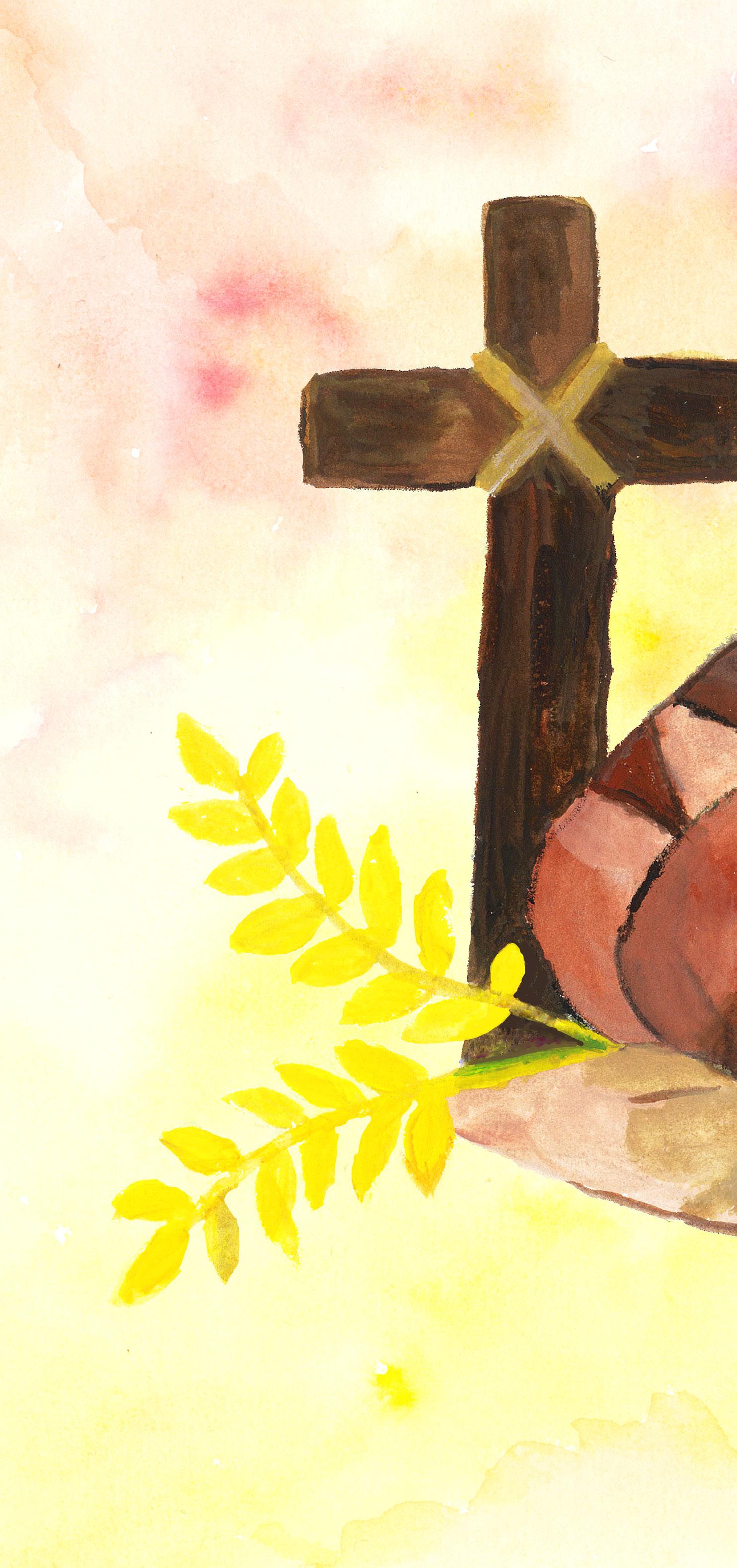
Only minutes before I’d been thinking about the important work of the Upper Hutt Corps foodbank, and reading some old jotted notes from Isaiah 55:1–3:
Come, all you who are thirsty, come to the waters; and you who have no money, come, buy and eat! Come, buy wine and milk without money and without cost. Why spend money on what is not bread, and your labour on what does not satisfy? Listen, listen to me, and eat what is good, and you will delight in the richest of fare. Give ear and come to me; listen, that you may live.
Though Isaiah’s hearers were doubtless often hungry, the prophet’s offer was of bread of a different kind, free but not cheap, hunger being the essential qualification, destitution even. I had been wondering how this ancient call might sound now on the streets of Upper Hutt, when I’d spotted the little package at the back door.
The mystery of the shared bread and the coin was solved when I arrived home from the Sunday meeting. There was our neighbour, sixyear-old Grace, with a box of fresh vegetables that her mum had bought from the local farmers’ market. Grace explained about the crispbread. She had decided to share it with us, and the two-dollar coin was from her money box, ‘because I wanted to do something nice for you guys’. Thanks so much, Grace. We love the veg. And you can’t beat shared bread.
26 Pēpuere February 2023
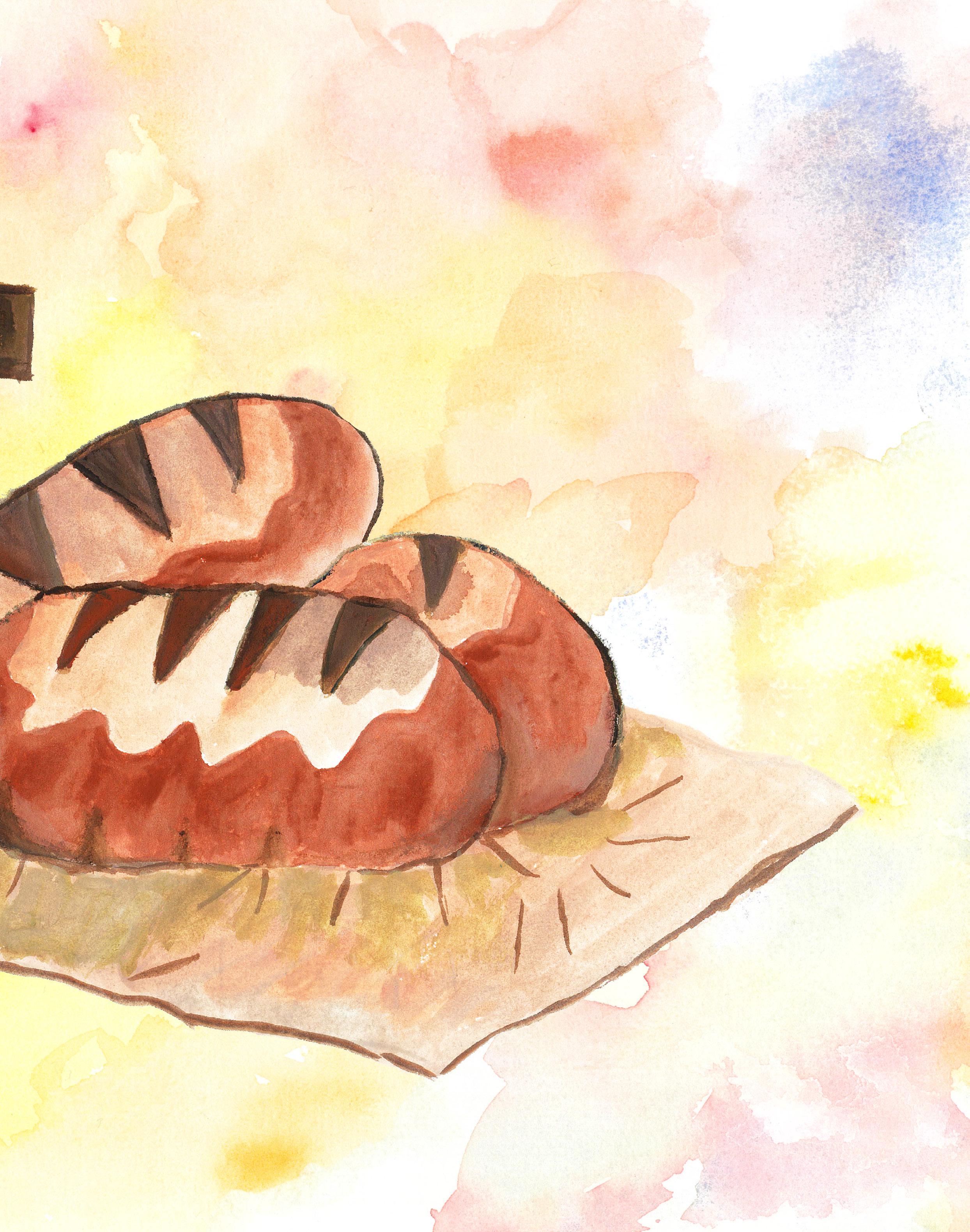
The Persecuted Kingdom
Major Mat Badger continues to explore the pitfalls and insights of the Parable of the Sower in this four-part series. Part Two looks at the seed that fell amongst the rock (Matthew 13:3; 5–6; 20–21).
The angry mob went silent and stepped back from the olive tree. Before dispersing they took a moment to observe the body swinging gently at the end of the rope in the warm Mediterranean breeze. The year was 93AD and the victim was a wellknown doctor—a physician by the name of Luke. This famous Gospel writer had been hanged for sharing the good news of Jesus Christ with his Greek listeners. So shocking and counter-cultural was the content of his message—local authorities knew that if these ideas took hold, the very fabric of their society would be challenged to the core—that he was put to death.
Martyrdom of the saints
By the time of Luke’s passing that day, many of his contemporaries—the apostles and other Gospel writers—
had already met similar fates. According to Foxe’s Book of Martyrs, James the brother of Jesus had been assassinated; Peter, Andrew, Jude and Bartholomew were crucified; Mark was torn limb from limb by an angry mob; Matthew, Thomas and Paul were beheaded; and Matthias was stoned to death. The only apostle to escape a violent death was John, who was sent into exile.
In the years that followed, there were 10 major persecutions, and Roman emperors consistently came up with new and creative ways to kill Christ-followers. Some were sewed inside the skins of animals and torn to pieces by wild dogs. Others were covered in wax, tied to poles and then set on fire to provide light for garden parties thrown by Emperor Nero. Emperor Trajan fed
combined.
Christians to the lions as a form of entertainment for the masses. Emperor Adrian killed over 10,000 Christians who were crucified in a cruel imitation of the death of Christ. The cruelties against Christians by Emperor Marcus Aurelius Antoninus were so inhumane that many of those watching shuddered in horror and were astonished at the courage of the sufferers. This period of persecution climaxed with Emperor Diocletian who initiated an attempted empirewide genocide of all Christians.
28 Pēpuere February 2023
More Christ followers were persecuted in the twentieth century than in all past centuries
Around 1000 years after this, thousands of people known as the Waldenses and the Albigenses were put to the sword for their love of the Word of God. Then, some time later, Martin Luther and John Wycliffe were persecuted; men such as John Huss, Jerome of Prague, William Tyndale, John Frith and Andrew Hewet were all burned alive at the stake.
The amazing thing is that persecution is not a thing of the past. More Christfollowers were persecuted in the twentieth century than in all past centuries combined. And according to the research group Open Doors, since 2020 an average of 11 Christians globally have been killed every day.
The cost of following Jesus
In Matthew 13, after addressing the issue of confusion in the first part of this parable, Jesus then moves on to address the issue of persecution:
‘A farmer went out to sow his seed. As he was scattering the seed … some fell on rocky places, where it did not have much soil. It sprang up quickly, because the soil was shallow. But when the sun came up, the plants were scorched, and they withered because they had no root.’
He then shared with his followers in private the meaning of these words:
‘The seed falling on rocky ground refers to someone who hears the word and at once receives it with joy. But since they have no root, they last only a short time. When trouble or persecution comes because of the word, they quickly fall away.’
There are a couple of key ideas in this text. First, accepting the message of the kingdom, the gospel, will come at a personal cost to varying
degrees. Notice Jesus’ words. It’s not if trouble or persecution will come, it’s when. Being a Christ-follower can be dangerous—literally! It’s one thing to say that you believe in something, it’s another thing entirely to hold to these beliefs when your life or the lives of those you love are on the line. And this is how it has been for many people throughout the history of the Church. You will have noticed that the examples I shared earlier were of people who were faithful in their convictions to the end. However, if this text is anything to go by, there will have been many more who would not have been faithful when times were tough. At the first sign of trouble, they would have given up or compromised. And second, it’s worth noting that the type of persecution that Jesus is referencing here is because of the Word. In other words, as I wrote in part one, the battle we are involved in is primarily spiritual, and believers are rejected in this world because Christ is rejected.
Persecution in God Zone
As a Christian in Aotearoa New Zealand, I have lived a life relatively free of trouble or persecution. For years we were known as a Christian nation and even had the nickname ‘God Zone’, which was a play on words for ‘God’s Own’. But at times, very minor persecutions do raise their heads in sudden and unexpected ways.
I remember when I was younger, we had a guest in our house who took exception to me watching a gospel presentation on TV. When our visitor realised what I was watching, she walked into our lounge, abruptly turned off the TV, and said angrily at the top of her voice, ‘that’s enough of that crap!’ This was quite a remarkable reaction since she was a
visitor in our house, and she had only been there for a short time. It was not really her place to assertively make this comment or insist that the TV be turned off. She was genuinely angry at the message I was listening to.
While for myself these kinds of incidents are minor and irregular, I must hold them in tension with the fact that it is unusual to be living in a place and time in history when the level of persecution is relatively low. This has not been the case for most of the history of the true Church in most of the world. But as a Christ-follower, I know that as the eschatological (prophetic) story unfolds, it does seem to climax with rising levels of persecution and hostility. So, for anyone accepting the message of the kingdom, it is an invitation to walk through the minefield of Christ-centred faith. Caution and discernment are most definitely required to proceed!
The challenge for each of us is to live in the tension that persecution for the Word of God and our faith may come in our lifetimes. Our preparation might be to think about how we will react to persecution before it happens and to pray for strength, courage and the ability to stand up for our convictions and beliefs.
warcrymagazine.org.nz 29
…for anyone accepting the message of the kingdom, it is an invitation to walk through the minefield of Christ-centred faith.
Go
to access the full news stories, plus further news as it is reported.
The General’s New Year Message
A new year always holds great potential and most of us will spend some time thinking about the uncharted landscape ahead. We ponder new year resolutions, we consider ‘beginning again’ – a new start or a clean page. In some instances, there are even things we want to leave behind and something rises within us suggesting that a refocused human effort will make a difference. Each year the voices come: ‘clean up your act’; ‘you can do better’; ‘get a grip’; ‘don’t be so disorganised’; ‘focus on the right things’. It isn’t always easy to get off to a good start!
As I’ve been thinking of all that effort and trying harder, I am reminded of Old Testament narratives of people constantly making gigantic efforts to secure a right relationship with God. Like them, we try harder, we strive and we practise our religion, hoping all will be well.
Samoa Takes a Stand Against Violence Towards Women
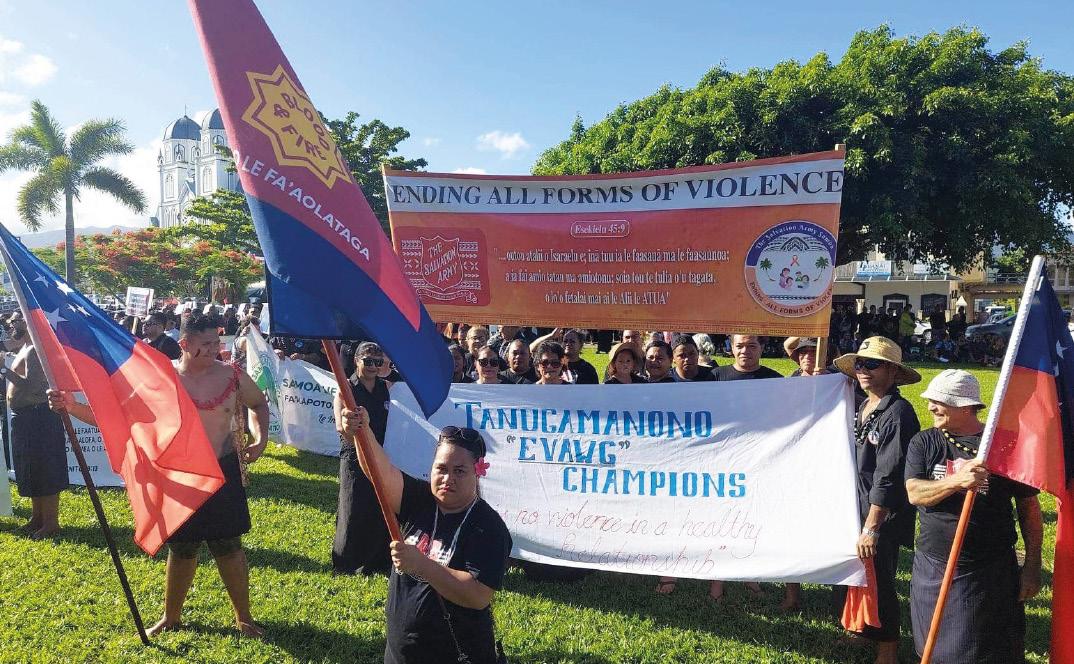
The Salvation Army in Samoa was given a grant, along with other NGOs in Samoa, from the Ministry of Women, Community and Social Development to provide programmes and activities to promote ending violence against women and girls in the country. The grant was sufficient to support a range of programmes run over a period of six months from the first of July to the end of December last year.In previous years, the government would run a campaign for 16 days, but 2022 was the first time they gave a funding grant to NGOs to run initiatives for a longer period of time. Regional Leader Captain Julie Turner felt honoured they were asked, as The Salvation Army has only been operating in Samoa for five years.
Latest State of the Nation report Set for
Release
30 Pēpuere February 2023
It’s Otautahi Christchurch’s turn to host the fifth Awaken Conference here in Aotearoa. As part of Pride week, Awaken Conference 2023 takes place from March 17–19 and is being hosted by Durham Street Methodist Church. Awaken is organised by Diverse Church New Zealand, a registered charitable trust. Craig Watson, the founder of Diverse Church and part of the Awaken planning team, explains that as usual there are two integral parts of the conference, Imago Dei and Missio Dei.
Read the rest of the General’s message at tinyurl.com/TSAGeneral2023 to our website— warcrymagazine.org.nz
Awaken Conference Goes South!
The Salvation Army’s flagship State of the Nation report is scheduled for release on 15 February. Produced by specialists in the Social Policy and Parliamentary Unit (SPPU), the report draws on existing data to provide a snapshot of social progress in Aotearoa New Zealand. Now in its 16th year, the report covers the major topics of Children and Youth, Work and Incomes, Housing, Crime and Punishment, Social Hazards and Māori Wellbeing.
A Bus Load of Good
It was an early start for the Rotorua Salvation Army
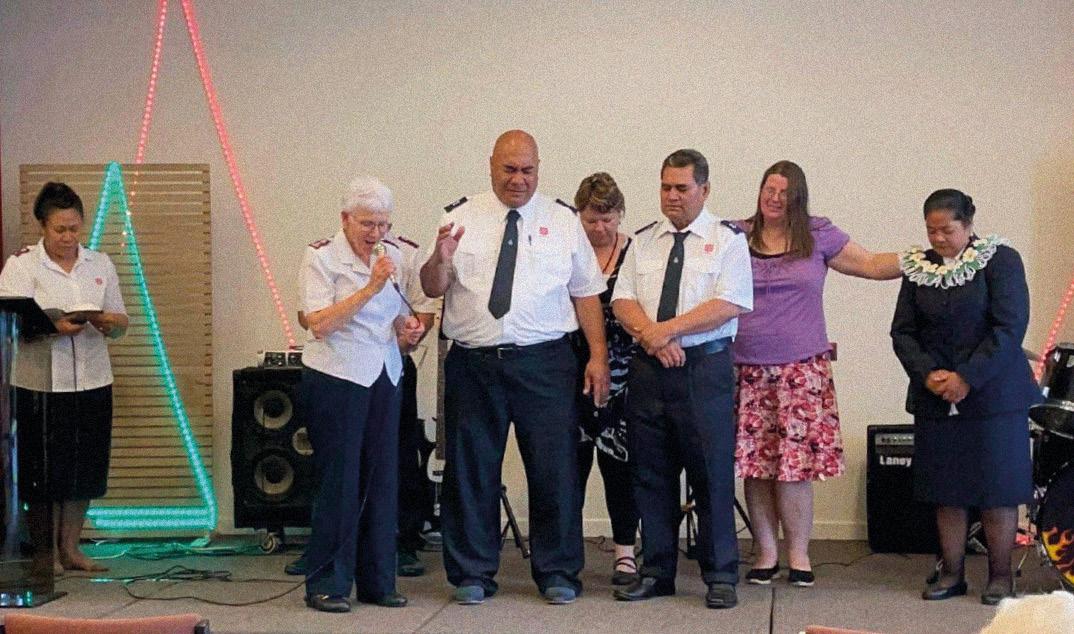
‘Fill the Bus’ team on December 7. At 7am the bus began its journey around the city picking up food for the annual Christmas Appeal. With a record 10,041 items donated—the biggest since ‘Fill the Bus’ started eight years ago, Captain Hana Seddon is ‘super grateful and so proud of the team’ for their tireless work. Hana puts the success of the appeal down to the incredible support of local community groups as well as corporate partners.
New Soldiers Celebrated at Papakura Corps
Papakura Corps enrolled three new soldiers recently, the first since corps officers Lieutenants Tofi and Eddie Metotisi started their appointment in 2021. The new soldiers have been attending the corps for several years and wanted to take the next step to commit to God’s plan for their lives. The soldiers enrolled were Kilepoa Mea’ole-Naea, and the couple Nati and Gaufa Taufua Seumanutafa who shared their testimonies and journeys to become soldiers in The Salvation Army. All three of the soldiers are currently serving in the corps: Nati regularly preaches sermons and Gaufa is part of the music team; Kilepoa has a desire to serve with youth and young people in their corps.
Kāitaia Prepares for New Salvation Army Centre
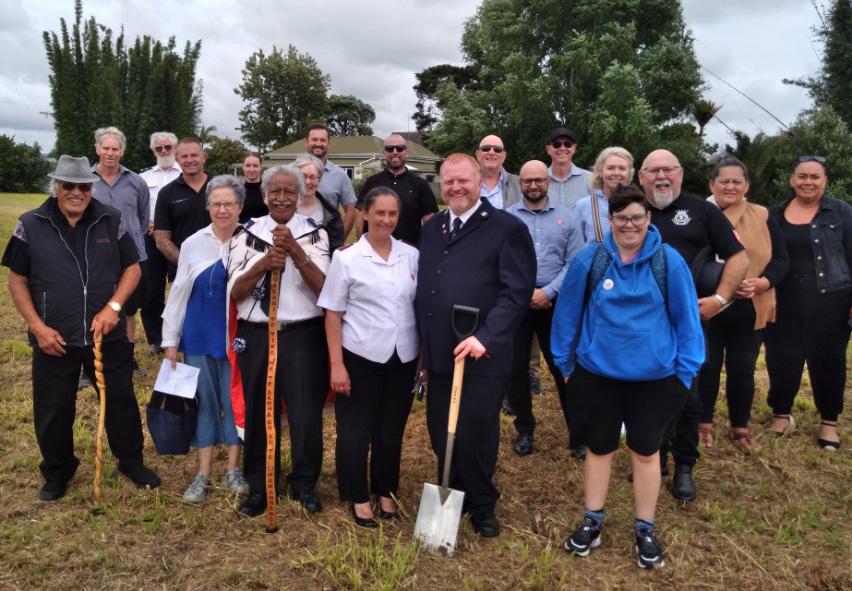
Work is underway on a new Salvation Army centre in Kāitaia that will see existing community services and programmes brought under one roof. A blessing and sod-turning ceremony was held in December, with construction of the single-storey building kicking off early this year. The purpose-built facility will accommodate the Far North (Kāitaia) Corps, Community Ministries, Family Store and Bridge programme, along with the provision of car parking. The project will be carried out in two stages. Stage one will involve a building to house the church, Community Ministries—including a foodbank—and the Family Store. The second stage will be an adjacent building for the Bridge programme that will be linked to the other building via a walkway. Construction of both stages of the new centre is expected to be complete by Christmas 2023.
A Place to Call Home for Samoa Sallies
On Saturday 5 November, The Salvation Army Samoa hosted a formal welcome for Territorial Leaders, Commissioners Mark and Julie Campbell, followed by a blessing of the newly acquired land at Vaivase. ‘To have a permanent place for The Salvation Army Samoa is vital for the ongoing sustainability of our services and will give us space for the development of future services. The Samoan word for land is fanua which is the same word used for the placenta of a growing baby. So, we see this land as a space to nurture our faith community and our community services as we grow physically and spiritually,’ explains Captain Julie Turner, regional leader for Samoa.
warcrymagazine.org.nz 31
Official Engagements
Commissioners Mark (Territorial Commander) and Julie Campbell (Territorial President of Women’s Ministries)
3–6 Feb: Waitangi Day Celebrations, Waitangi
5 Feb: Far North (Kāitaia) Corps visit
10–12 Feb: Glenfield Corps 50th Anniversary
13 Feb: Mission Support Team and ASARS, Auckland visit
15 Feb: State of the Nation Launch
17–20 Feb: Territorial Welcome to Cadets, Fiji
21 Feb: Northern Leaders Councils
22 Feb: Spiritual Day, BCM
25 Feb–7 Mar: SPEA Zonal Leaders Conference, South Korea
Colonel Gerry Walker (Chief Secretary)
3–6 Feb: Waitangi Day Celebrations, Waitangi
15 Feb: State of the Nation Launch
17–20 Feb: Territorial Welcome to Cadets, Fiji
25 Feb–7 Mar: SPEA Zonal Leaders Conference, South Korea
Lt-Colonel Liz Gainsford (Territorial Secretary for Spiritual Life Development)
27 Feb–5 Mar: SPEA Zonal Leaders Conference, South Korea
Gazette Summary
To read the full version of Gazette notices, visit warcrymagazine. org.nz/gazette
Promotion to Glory: Major Shirleen Bradley was promoted to Glory on Saturday 24 December 2022 from Nelson Tasman Hospice, aged 73 years. On 23 March 1974 entered officer training in 1983 from Aranui Corps with her husband Peter Bradley as cadets in the Servants of God session. Please uphold in prayer Major Peter Bradley, their children David, Andrew, Kathleen and Benjamin, their grandchildren, and other members of the extended family at this time of grief and loss. Well done, good and faithful Servant of God!
Bereavements: Captain Mereyani Bacaivalu of her mother Mrs Luisa Bulou Namawi, who passed away on Tuesday 3 January 2023, at her residence in Votua Village in Ba, Fiji, aged 78 years. Please uphold in prayer Captain Mereyani Bacaivalu and the family at this time of grief and loss.
Major Jan Smithies of her brother Frederick (Fred) Smithies , who passed away suddenly on Friday 6 January 2023, from Invercargill, as well as her brother Sidney (Sid) Smithies , who passed away on Monday 9 January 2023, from Australia. We ask you to uphold in prayer Major Jan Smithies and other family members in this time of grief and loss of two family members within five days, and Jan’s third brother within six months.
Resignations: Effective 7 January 2023, the Territorial Commander announces with regret the resignation from officership of Major
Corryn and Lieutenant Francis Vemoa. We thank Corryn and Francis for their ministry and service and pray God’s blessing on them and their family in the days ahead.
Effective 18 January 2023, the Territorial Commander announces with regret the resignation from officership of Captains Adam and Sarah-Ann Grove. Although Adam and Sarah-Ann have resigned from officership, they will continue to the provide leadership oversight for the Wairarapa Region in a voluntary capacity until further notice. We thank Captains Adam and Sarah-Ann Grove for their seven years of active service and pray God’s blessing on them and their family in the days ahead.
Promotion: Effective 14 December 2022, the Territorial Commander is pleased to announce the promotion of Major Elisabeth Gainsford to the rank of Lieutenant Colonel. We congratulate Lieutenant Colonel Liz Gainsford on her promotion and pray God’s continued blessing on her as she serves God faithfully in her appointment.
Appointments: Effective 12 January 2023, Lieutenant Stuart Duxfield has been appointed as divisional youth secretary, Southern Division, while continuing in appointment as corps officer, Rolleston Corps.
Captain Michelle Lee has been appointed as divisional secretary for Women’s Ministries, Midland Division, as an additional appointment. Major Malcolm Herring has been appointed as corps officer, Woodville Corps, Central Division, as an appointment in retirement.
Retirements: Effective on 17 and 18 January 2023 respectively, Majors Susan and Paul Jarvis have retired. On their retirement Susan had completed 37 years of active officer service and Paul had completed 38 years of active officer service. Paul entered the Training College from Glenfield Corps in 1983 as a cadet in the Servants of God session, and Susan entered Training College from Christchurch City Corps in 1984 as a cadet in the Guardians of Truth session. It is with sincere thanks and appreciation that we honour Major Paul for his Bible teaching as a true Servant of God and Major Susan for her administrative and caring ministry as a Guardian of the Truth and through their many years of faithful service to their Lord. We pray God’s richest blessings on Paul and Susan in the years ahead.
Effective 31 January 2023, Major Glenys Fairhurst has retired. On her retirement Major Glenys Fairhurst had completed 41 years and 16 days of active officer service. Glenys and her husband Dean entered the Training College from Blenheim Corps in 1980 as cadets in the God’s Soldiers session. In her retirement Glenys will continue as facilitator to the 12 Steps Programme, Centre for Leadership Development. We acknowledge and thank Major Glenys Fairhurst for the differing ministries she has fulfilled faithfully and loyally as God’s Soldier. We pray God’s richest blessings on Glenys in the years ahead, as she continues to serve her Lord and Saviour.
32 Pēpuere February 2023
Quiz Answers: 1. Over 100,000, while the settler population was 2000, 2. 1975, 3. 39, 4. Nine (all held at Archives New Zealand), 5. Religious freedom (requested by Catholic Bishop Pompallier on February 6, 1840).
Carrying the Message to Australia
The Salvation Army has a rich and varied history which is preserved at the Heritage Centre and Archives (Plowman Research Centre). This edition looks at The Salvation Army’s early interactions with tangata whenua (Māori; people of the land), and in particular the Army’s Māori Party and their evangelical tour of Australia in 1895.
The Māori Party was established in 1895, with five initial members, many of whom were connected earlier to the Māori Ministry work of the Army, which was founded in 1887. Captain John Nicholls, who headed up the party, was one of a group of young men who followed and served with Captain Ernest Holdaway in Whanganui. Cadet Maraea Tamatea, the daughter of Chief Tamatea of Ngatihau-nui-aPaparangi, began work with two others as single women officers in Māori Ministry in Ōtaki.
This party was created to be used for an evangelical tour of Australia. The 20 April 1895 edition of War Cry included a report on this trip from Major Bruntnell: ‘Some time back, we referred to the decision of our Commandant to take over a band of our dear Māori comrades to the other Colonies. I am now in a position to give the names, etc., of those who will form the party, and certainly think Maoriland will be thoroughly and truly represented. First of all, Captain Nicholls, who has had long experience in the Māori War, and who understands the language properly, goes in charge of the party, which comprises Lieutenants Tamatea, Aterea, Cadet Stirling, and Brother Wini Grey. They sail from Auckland for Sydney in the S.S. Mararoa, on April 30th, and we wish them every blessing and success. Amen!’
The party spent seven months in New South Wales and Victoria, and then two months in South Australia.
Ivy Cresswell’s book Canoe on the River states that ‘over three hundred people sought salvation and many others claimed the blessing of a clean heart during their meetings’. There was even a mention of a young man who walked 70 miles to see the Māori Party and attend one of their meetings.

Harold Hill’s collection of Salvation Army documents in Te Ope Whakaora says the following about their travels.
‘Early in 1895 Captain John Nicholls, one of Holdaway’s young comrades from the Whanganui River days, led a Māori party on a very successful evangelistic tour of New South Wales and Victoria. The young vocalist in the party, Sarah Stirling from Riverton, caused something of a sensation by the beauty and power of her singing. Both her parents were of part-Māori descent and her grandfather, Captain William Stirling, a whaling captain, has contributed much to the development of the port of Bluff.’
A particularly striking reflection from one of the members of the party, Brother Wini Grey, is noted in Ivy’s book, which considers how their perceived differences did not matter when it came to sharing the gospel:
‘When we went to Australia, people would come miles to see us—thought we would have one eye and one leg, or something like that; but when they saw us they said, “Why, they’re just like us!” … And when they heard the two girls speak in English they thought it was just wonderful. Many years ago the Europeans brought us the message of the gospel, and now we have been to them, carrying the same message of salvation.’
warcrymagazine.org.nz 33
Back row, from left: Lieutenant George (Hori) Aterea; Captain John Nicholls; Brother Wini Grey. Front row, from left: Cadet Sarah Stirling; Lieutenant Maraea Tamatea (Photograph taken around April 1895).
The value of where you come from
Waitangi Day is one of many important historical public holidays in our territory. It isn’t always easy to talk to your children about your country’s history, especially when it might be violent or doesn’t have a happy ending. But there are always important lessons for them to learn, such as the importance of unity.
It’s important to teach your children about where they come from, and any cultural practices that are important for your family. What is important for them to know about their country? What is important for them to know about God? What are faith traditions that have been passed down?
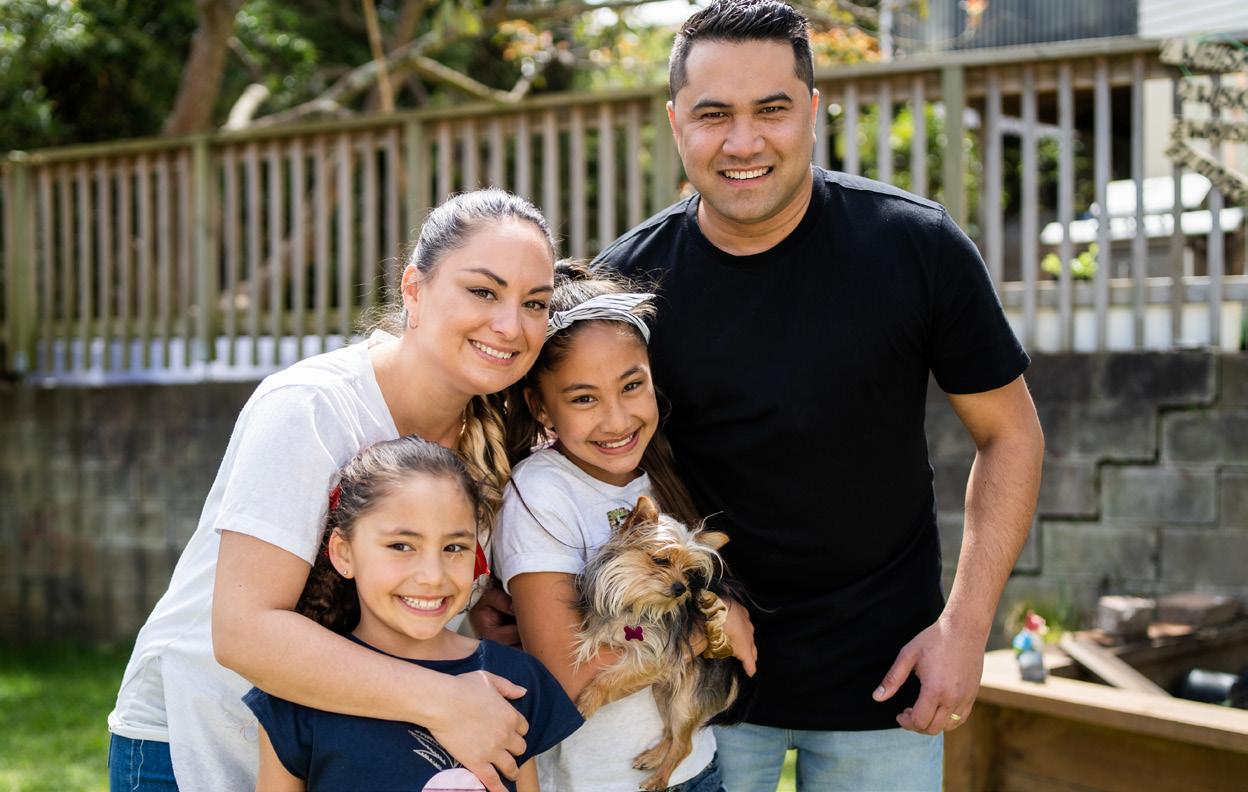
While it’s important to tell your children about their family, country and faith history, it’s also important to acknowledge that not everything in the past went well. Things could have been done better, and as a parent or caregiver you can encourage your children to always work together in harmony with those around them. Here are a few ways to encourage children to respect others
• Encourage your children to talk to a relation or friend who they may not normally talk to, for example, a senior aunt or uncle. Suggest topics your child may find interesting, such as the relative’s childhood.
• If your child says they will do something to help you or someone else, support them to follow through.
• Encourage your child to look for the positives in a negative situation.
• If you are visiting friends or family, prepare your child with prompts for good manners and behaviour.
Did you know there is an alphabet that uses flags! The semaphore flag signalling system uses a pair of flags held at different angles to spell out words! The word to the right is WHĀNAU!
Whānau Design Flag Your
Source: Waitangi Day Activity Book Pukapuka Mahi, Te Papa
All countries around the world have a flag that has significance and meaning. Give it a go creating your own flag with different symbols, imagery and colour that is important to you. Send through a photo of your whānau flag to warcry@ salvationarmy.org.nz . It might even end up in a future edition!
First, draw three pictures that come to mind when you think of your home.
Now, draw three pictures of your favourite things to do with your family
34 Pēpuere February 2023
Now use these pictures and colours to make your new whānau flag on a piece of paper or fabric.
Keep your promises
‘Then he took a cup, and when he had given thanks, he gave it to them, and they all drank from it. “This is my blood of the covenant, which is poured out for many,” he said to them.’ Mark 14:23–24
Read: These verses reflect on Jesus telling his disciples about the new covenant that was to come, created through his sacrifice on the cross. ‘Covenant’ means an agreement between two people (or groups). This covenant was made between Jesus and everyone in the world, so nobody is left behind. In this covenant, we don’t have to earn God’s love and Jesus always forgives us.
Think: The Treaty of Waitangi is an agreement/covenant made between Māori chiefs and the British Crown to ensure people’s rights were upheld. What makes an agreement a covenant is making big promises that you keep forever. However, because The Treaty of Waitangi was made between humans, the promises weren’t always kept.


Next, pick three colours that you want to use on your flag!
Pray: Pray for healing in relationships between people of different ethnicities, for broken friendships and other relationships to be restored. Pray for all people in your country to work together in peace and happiness. Ask God to help you keep promises to your family, your friends and other people in your life. Ask him to teach you the value of keeping promises.

Do: Practise keeping promises to one person in your life. Maybe it’s with your mum, dad, caregiver, grandparent, sibling, friend or teacher. Tell them you want to make a small promise with them. Perhaps that’s promising to set the table or help cook dinner. No matter what it is, promise that person you’ll keep the promise and then do it! Keep your word.
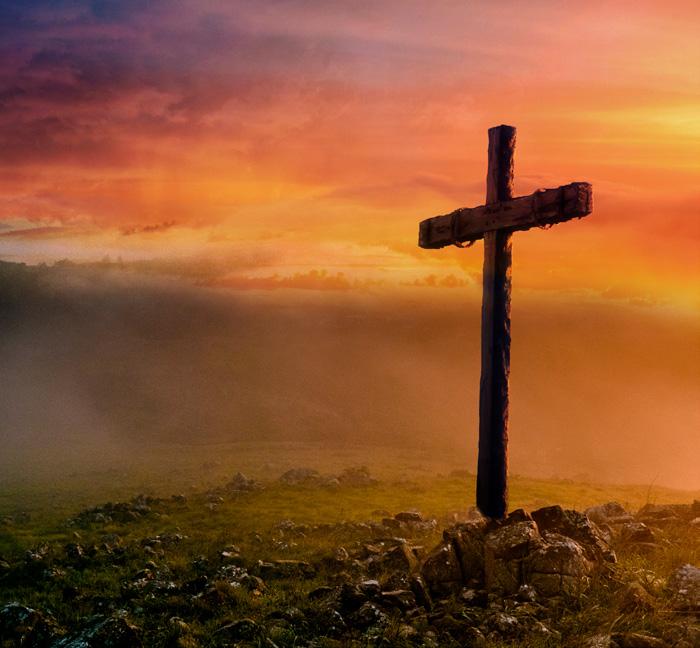
SomeoneFunfact: who studiesflagsiscalled avexillologist!
Funfact:Nepalis flagtheonlycountrywitha orthatisnotasquare arectangle.
warcrymagazine.org.nz 35
Let us keep close together, not wide apart.
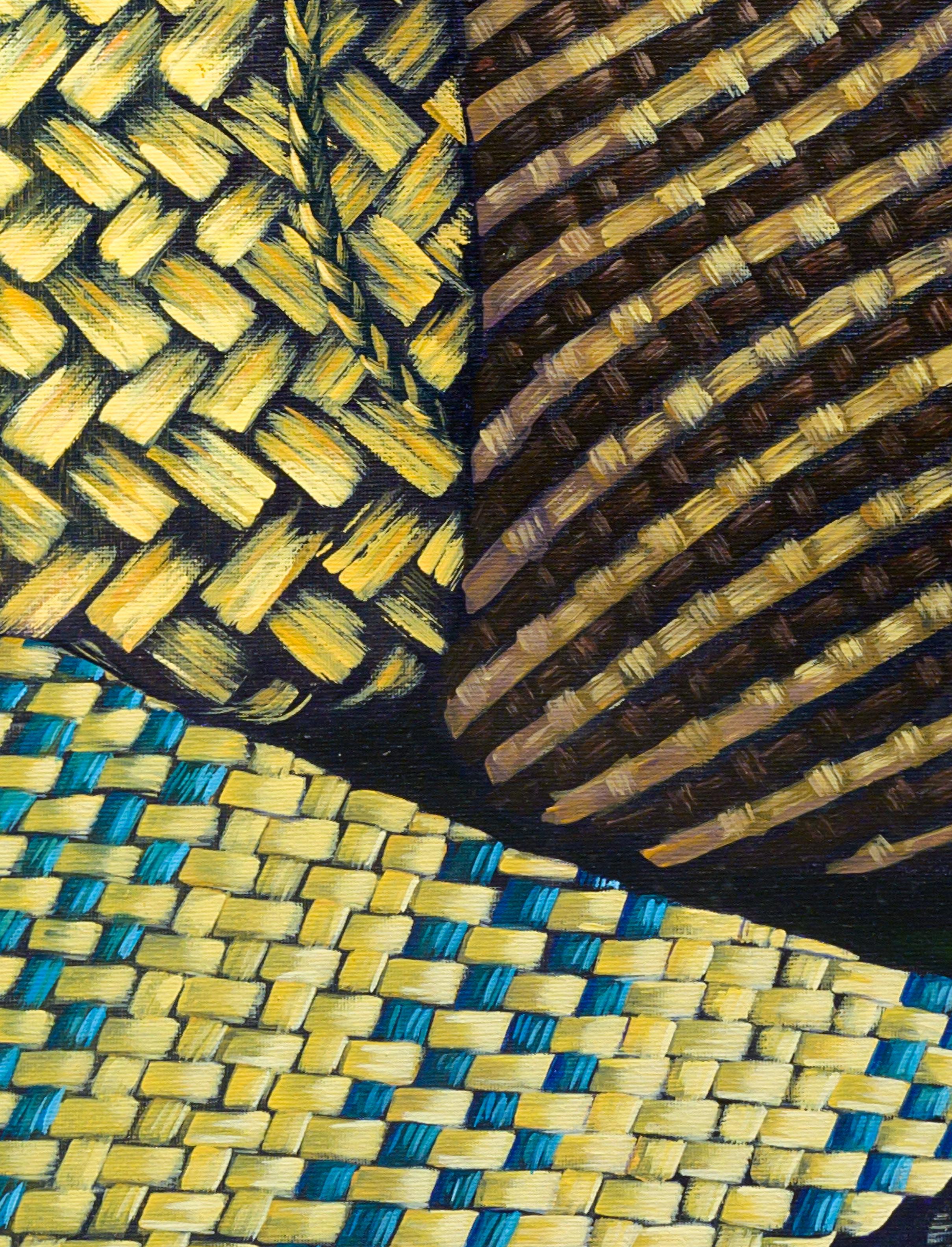
Waiho i te toipoto, kaua i te toirioa.



















 Above: Lt-Colonel Ian Hutson (centre—wearing red) with members of The Salvation Army Māori Ministry and Mongrel Mob gang members as part of the Army’s work in addiction rehabilitation.
Above: Lt-Colonel Ian Hutson (centre—wearing red) with members of The Salvation Army Māori Ministry and Mongrel Mob gang members as part of the Army’s work in addiction rehabilitation.




































 Above: Gill Fiford (right) with Major Joe Serevi.
Above: Gill Fiford (right) with Major Joe Serevi.





















